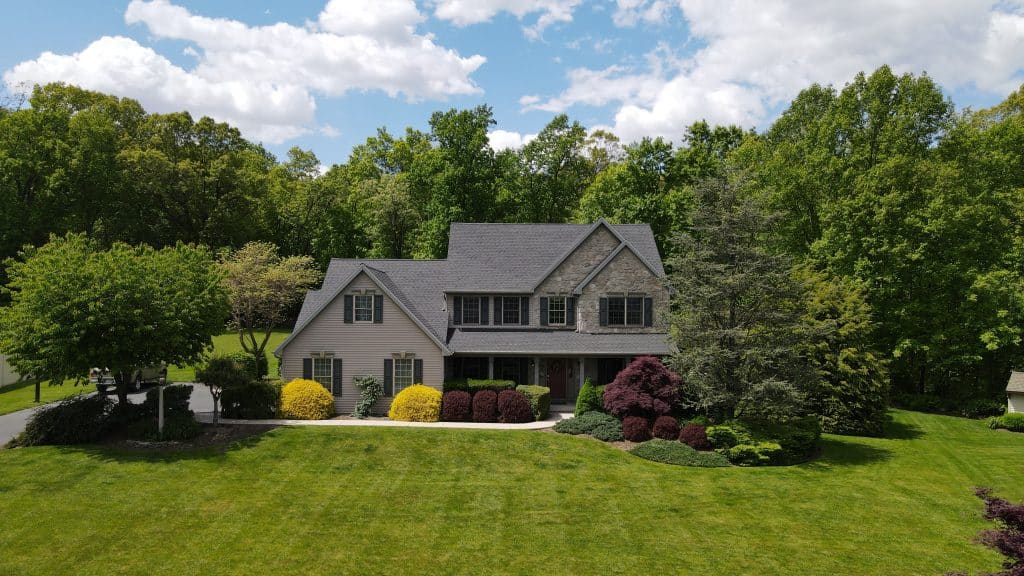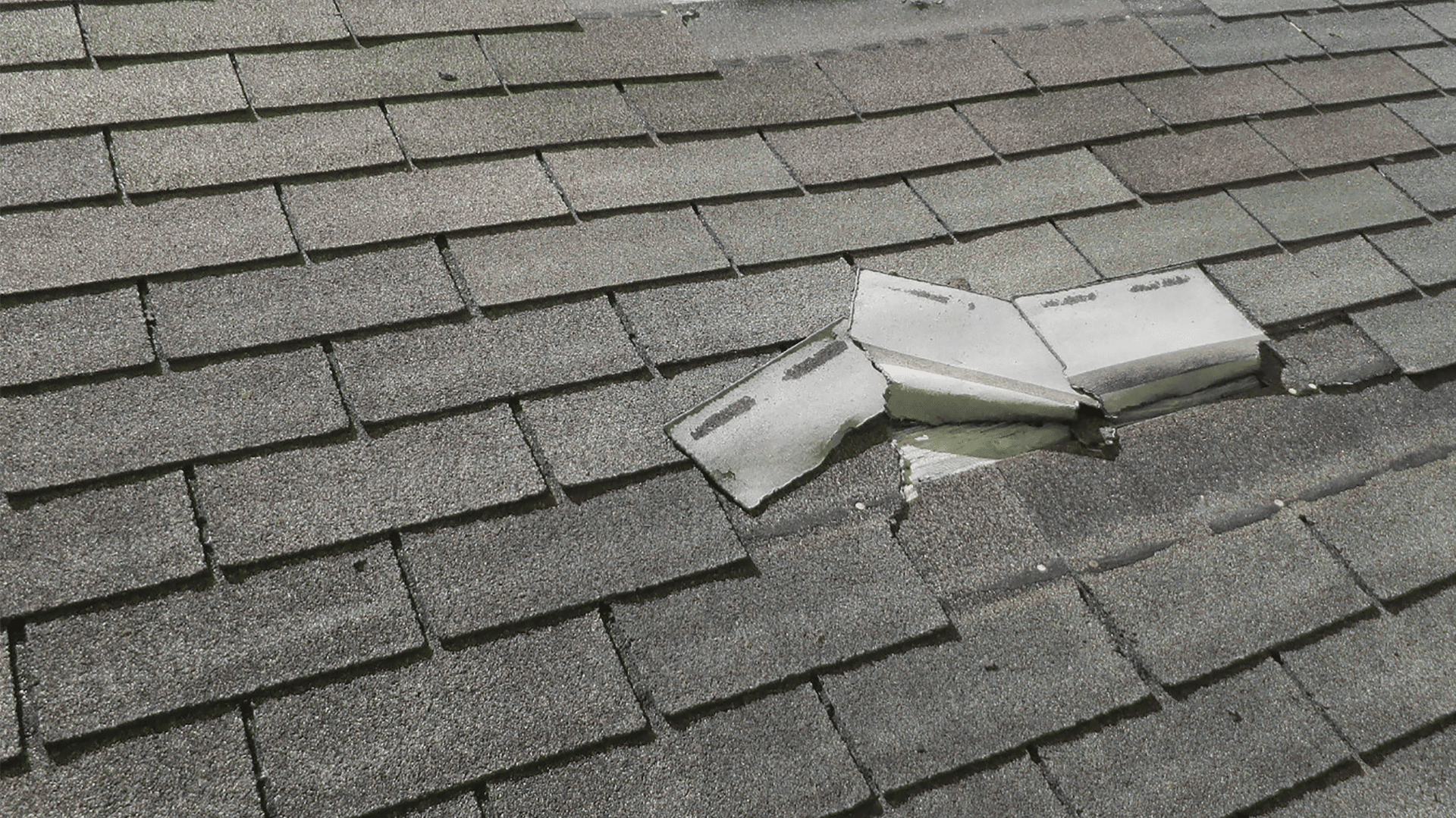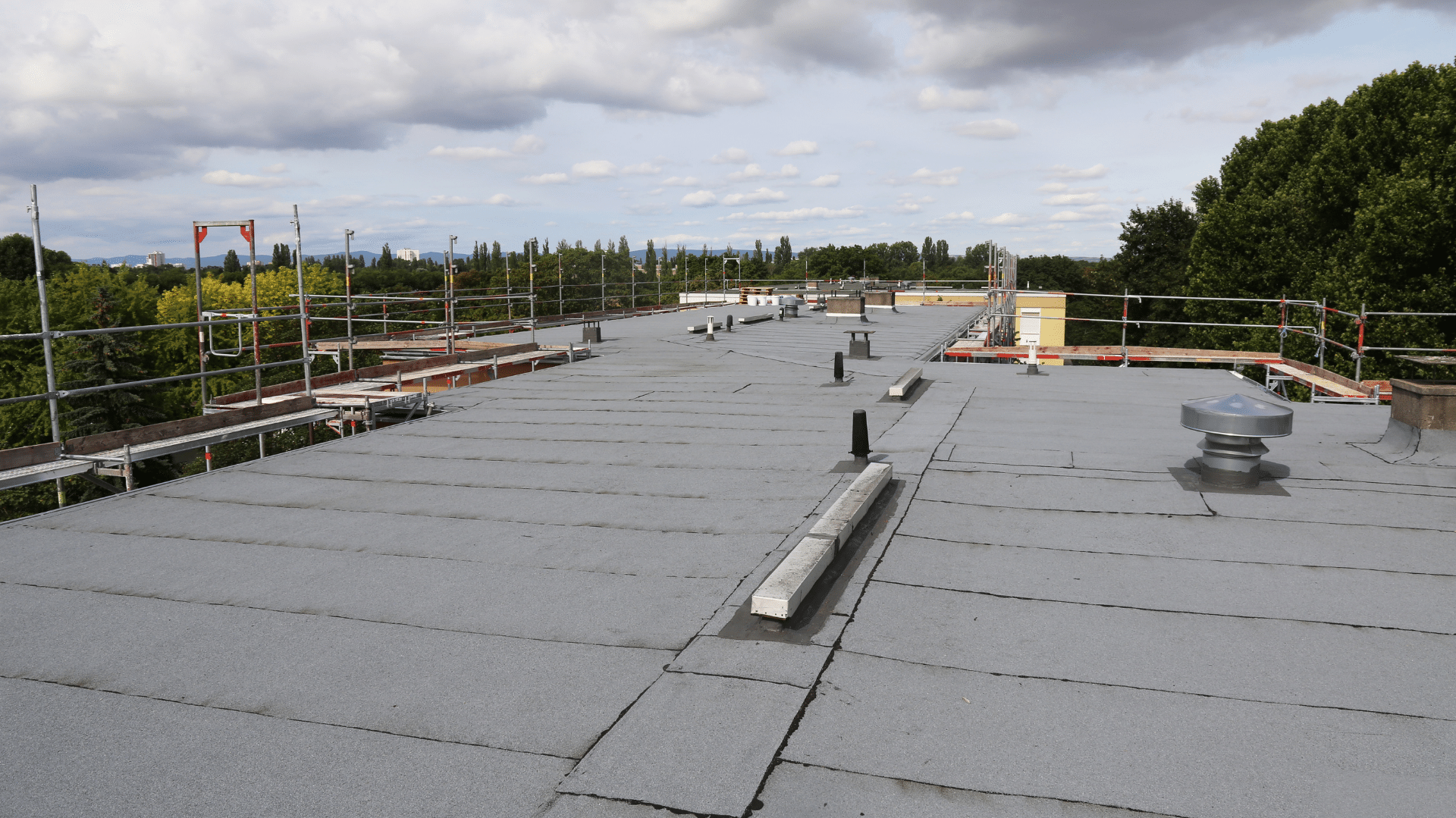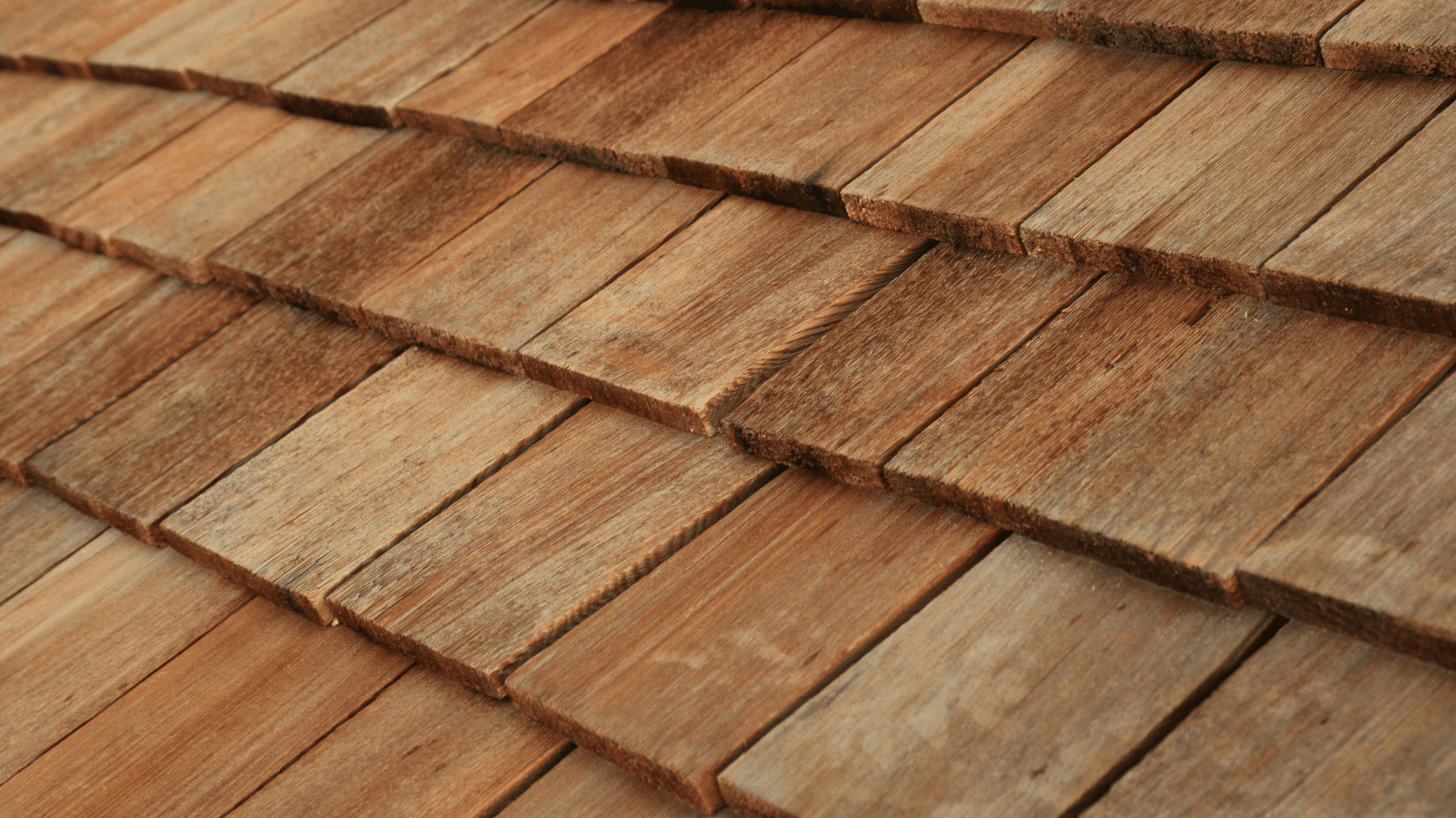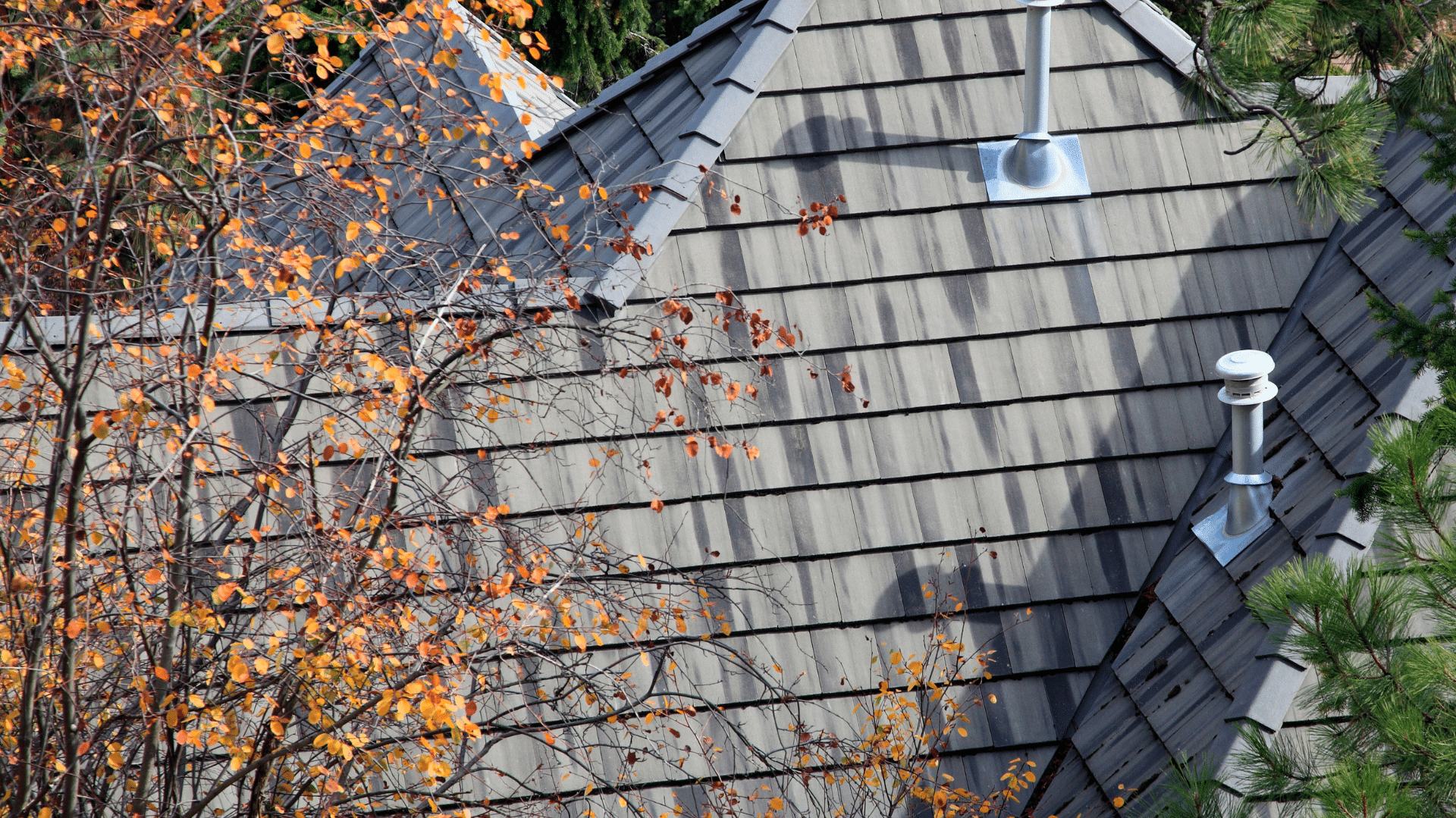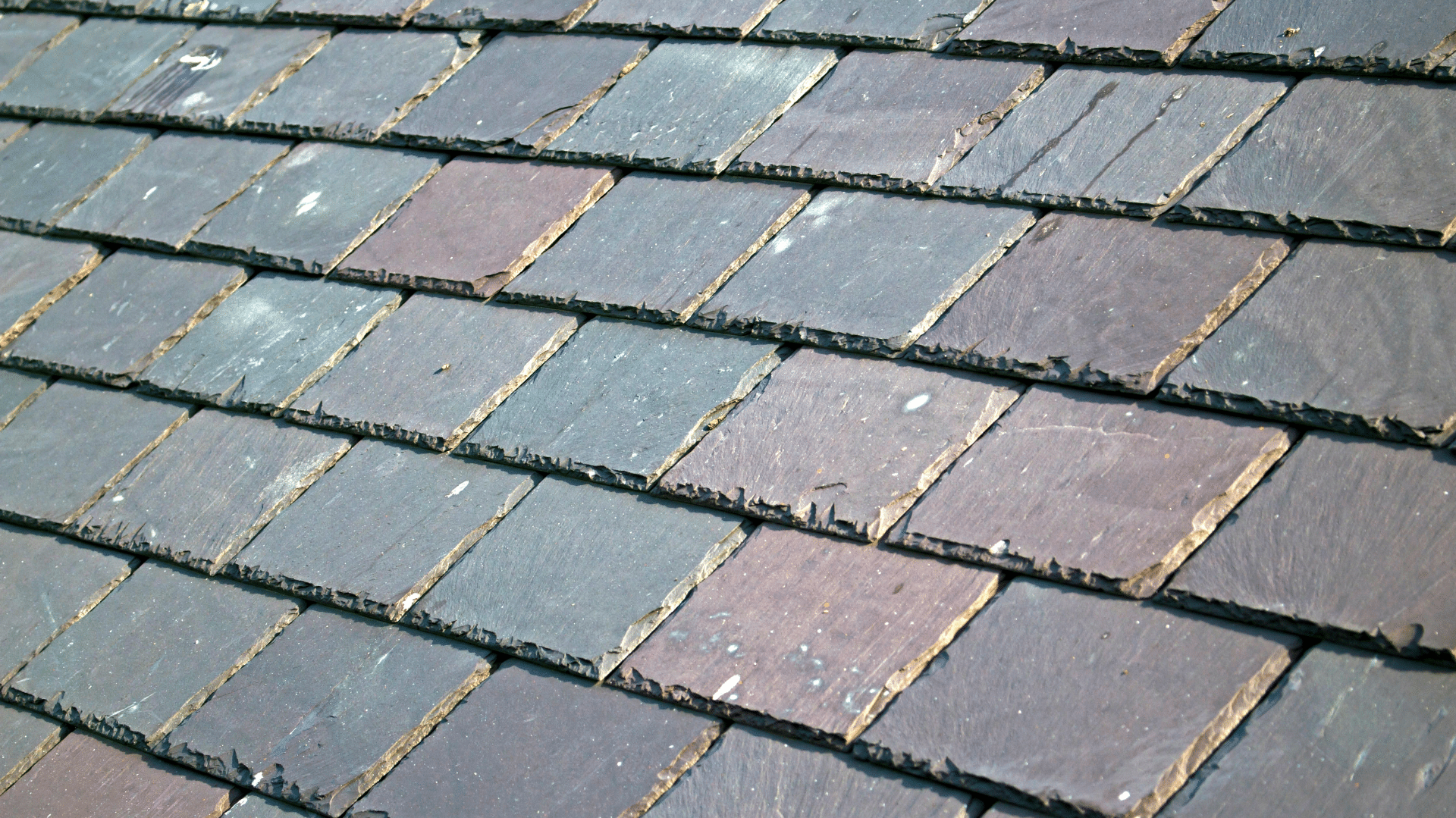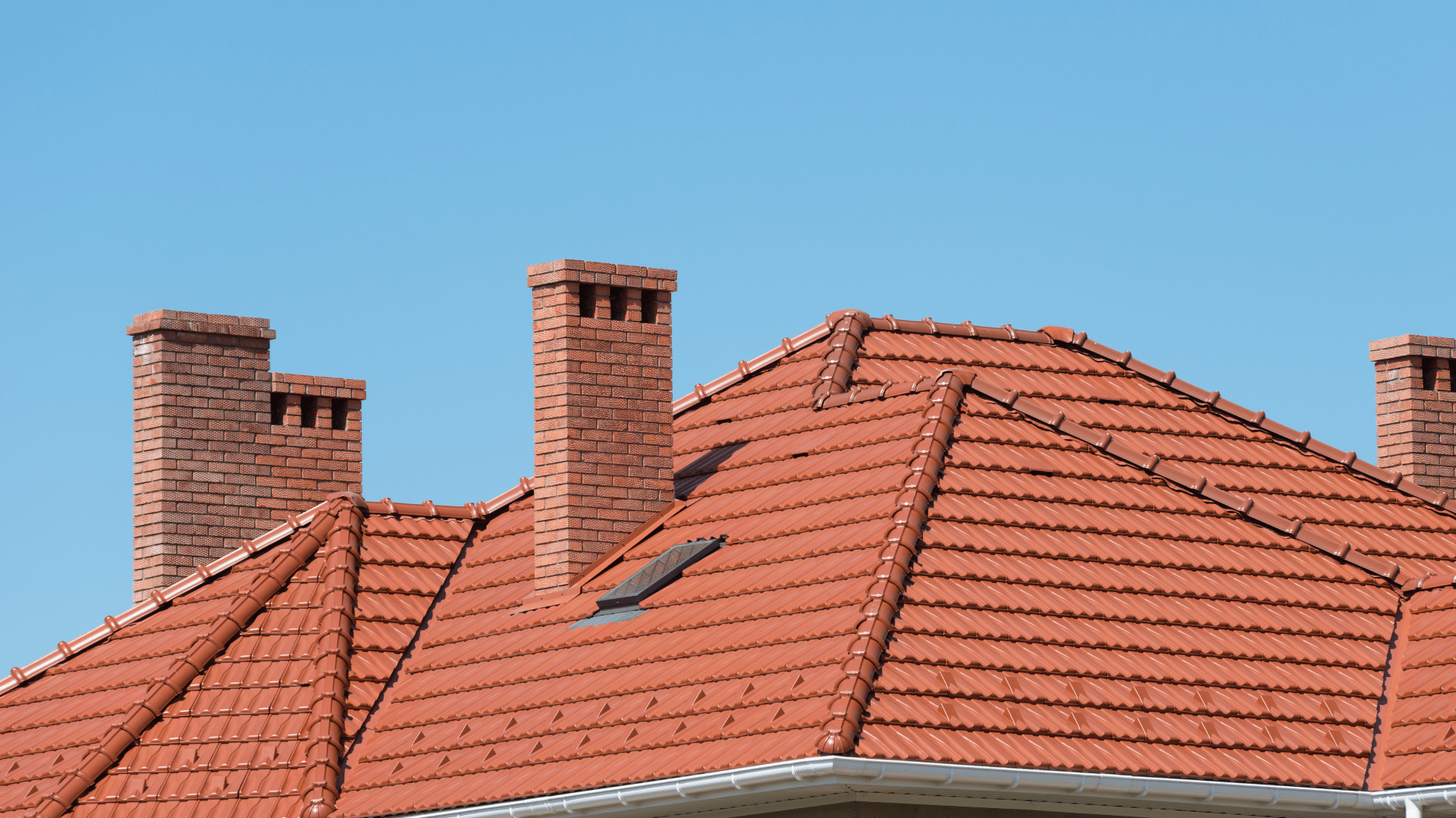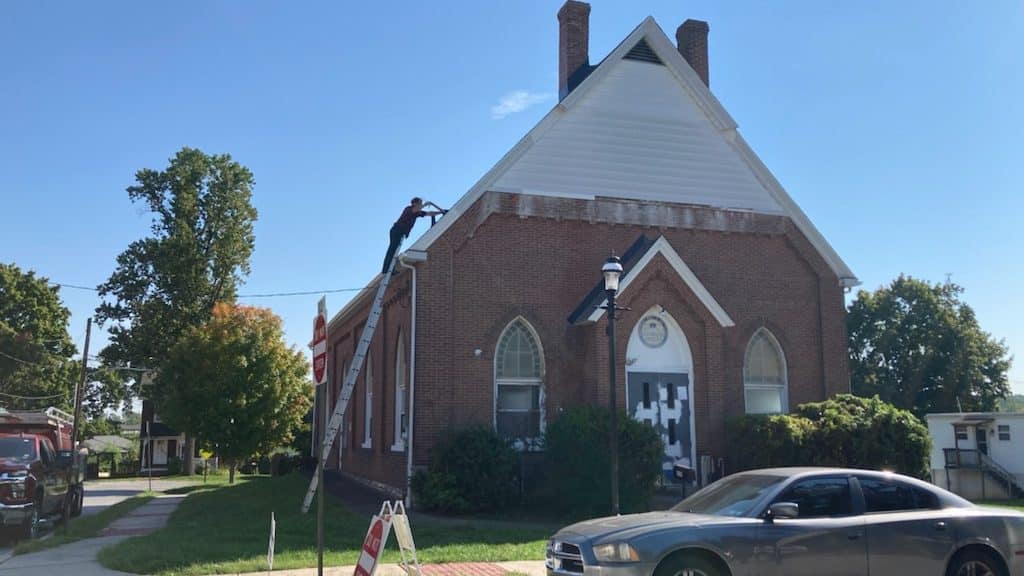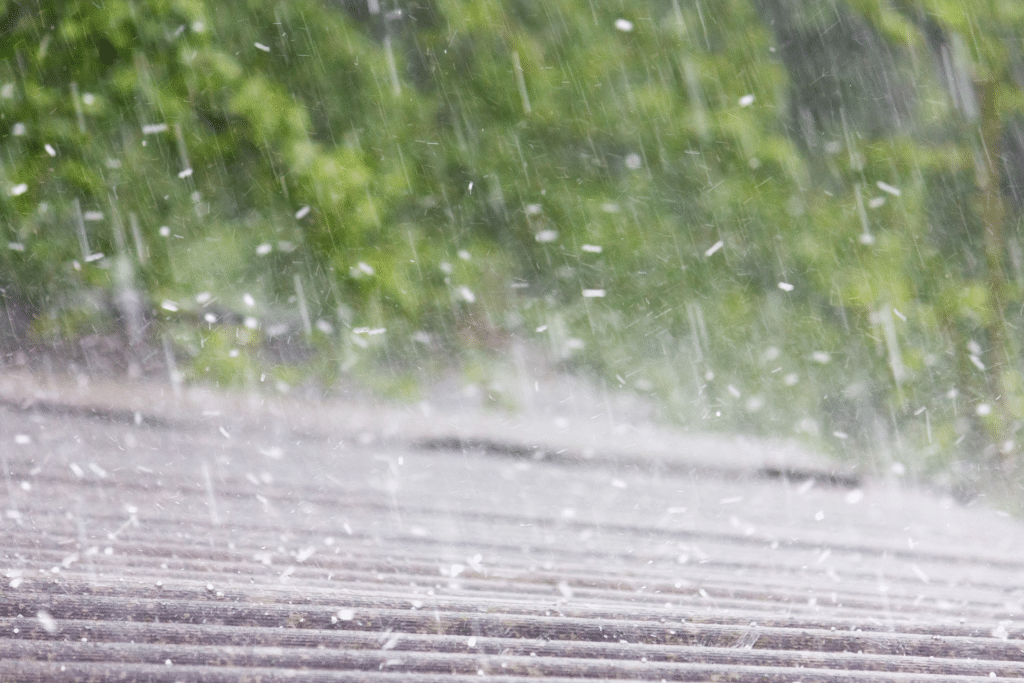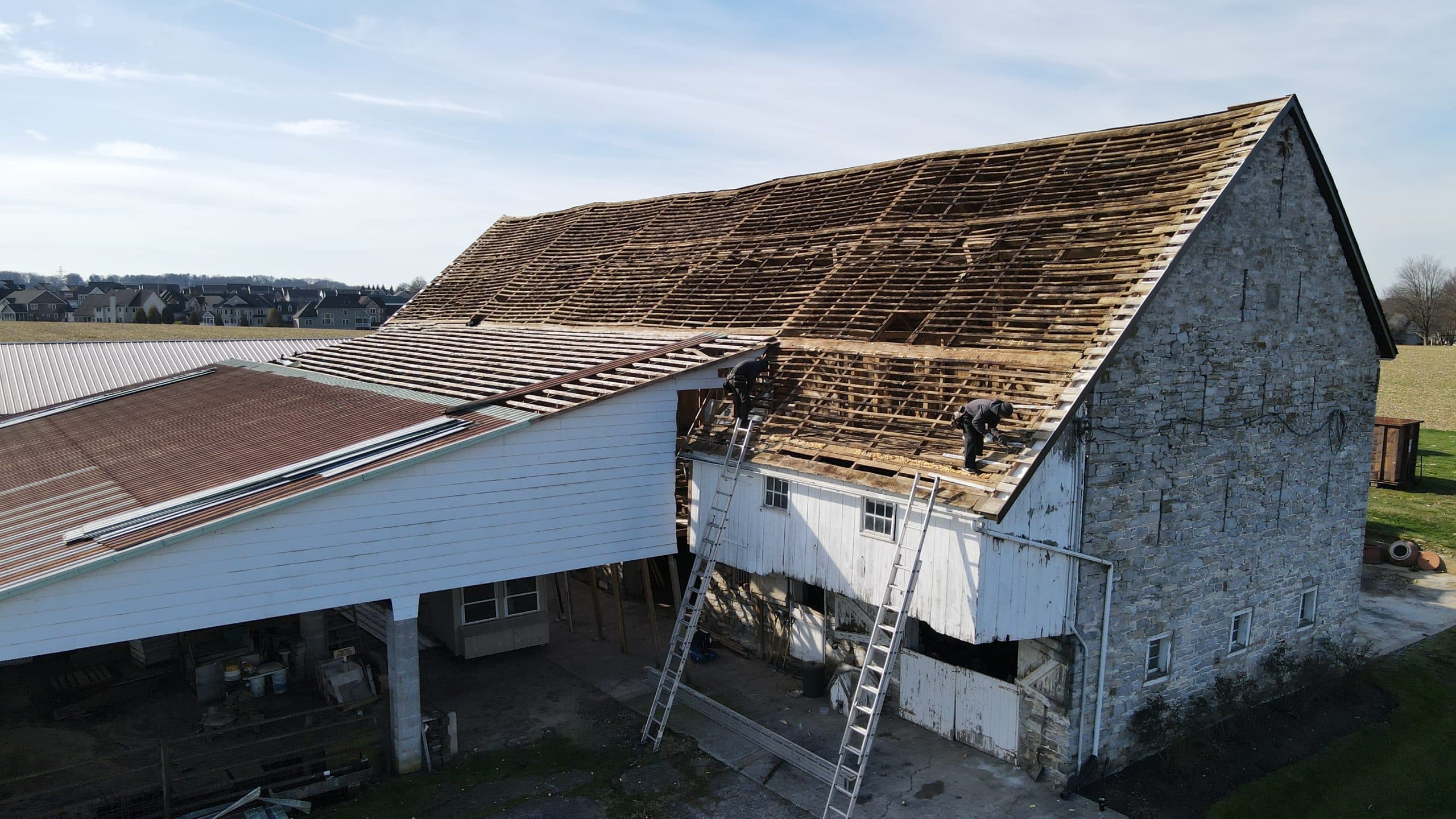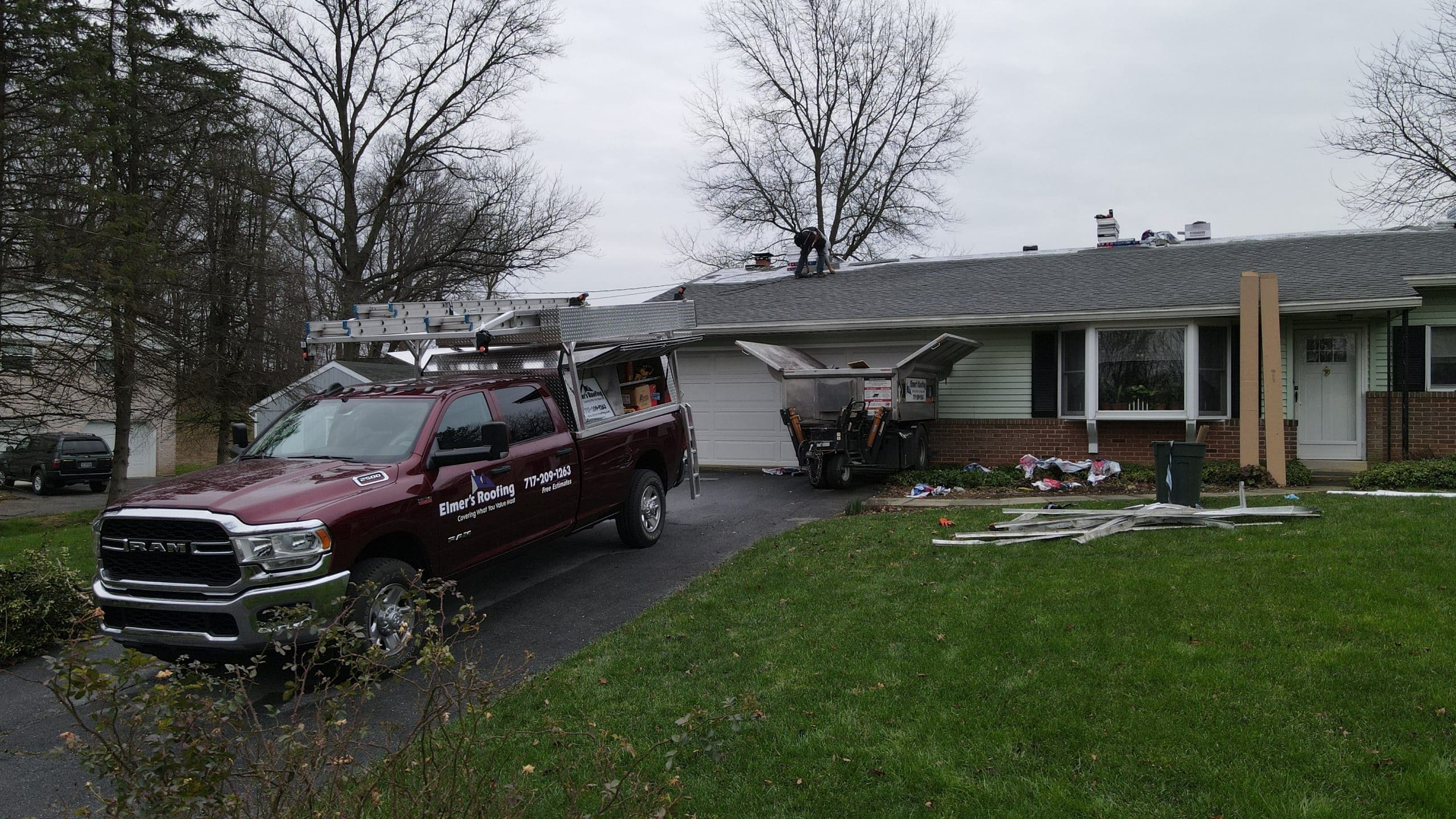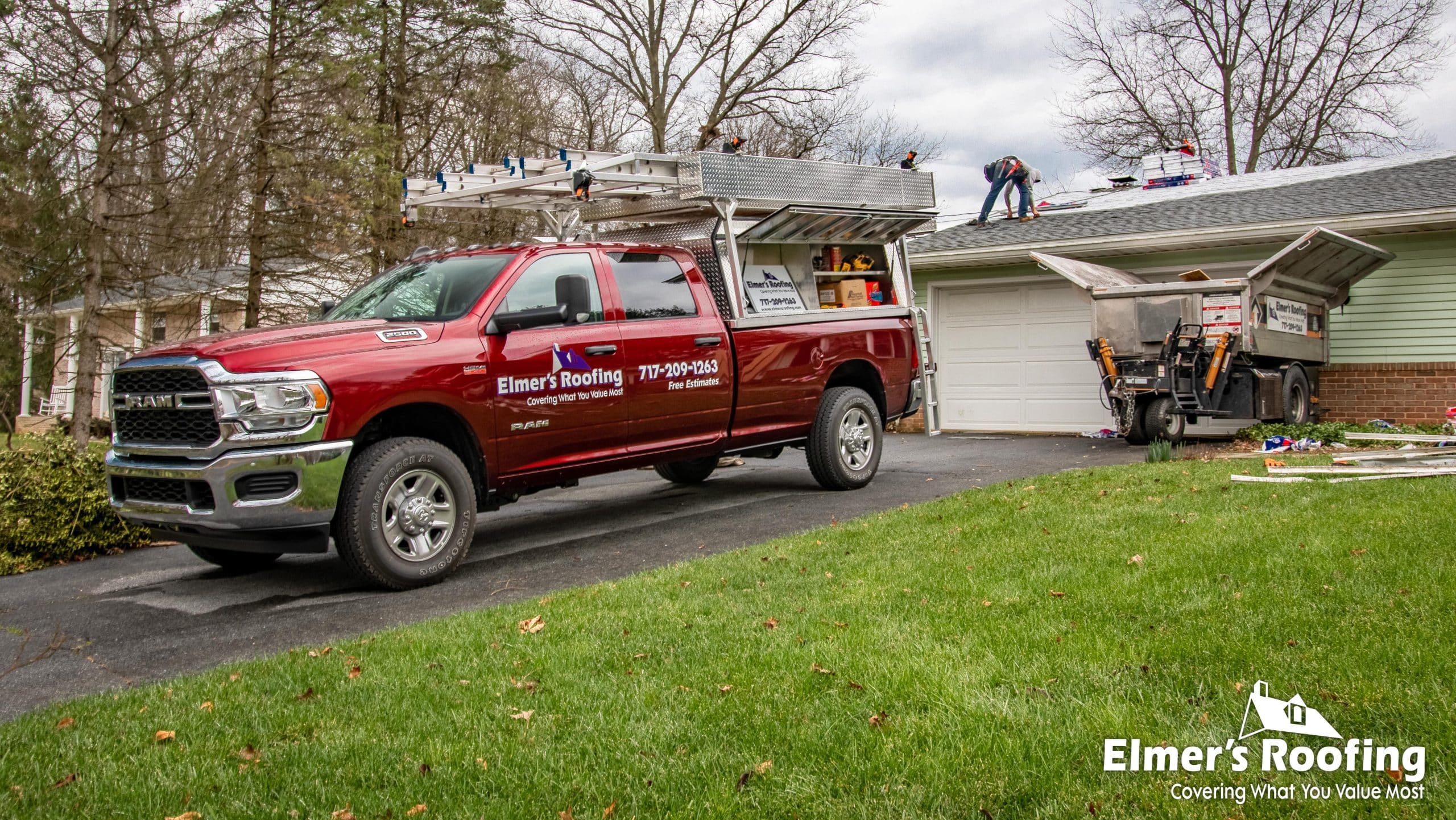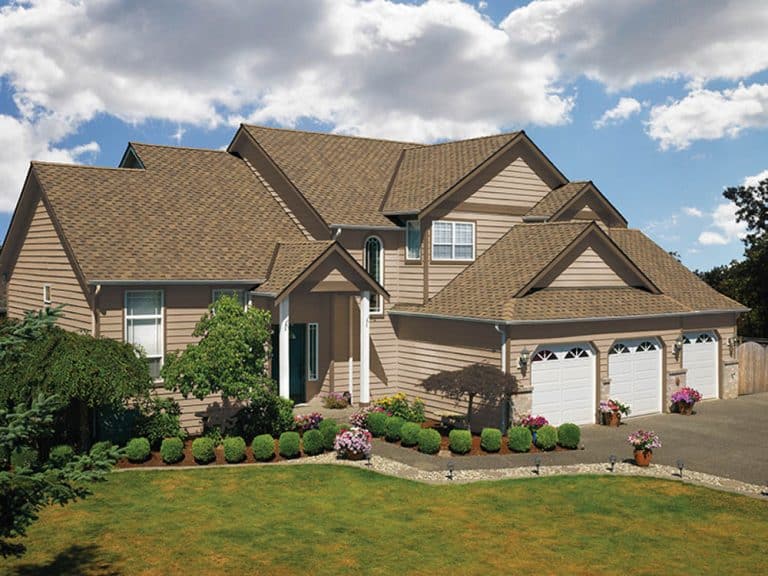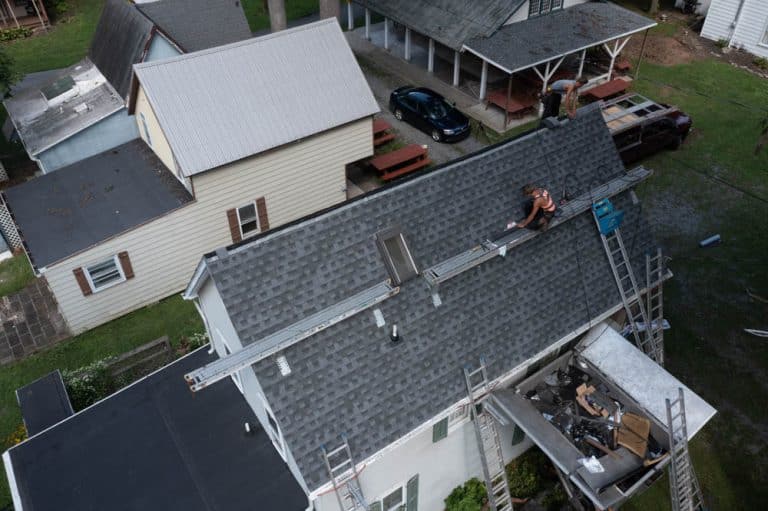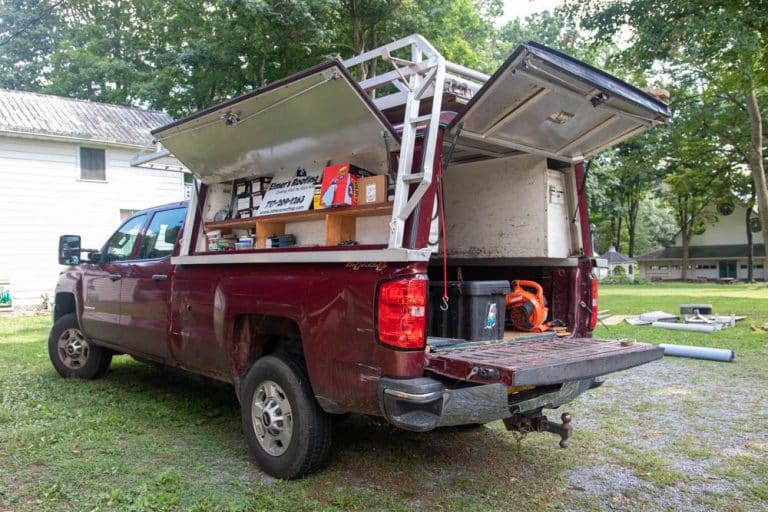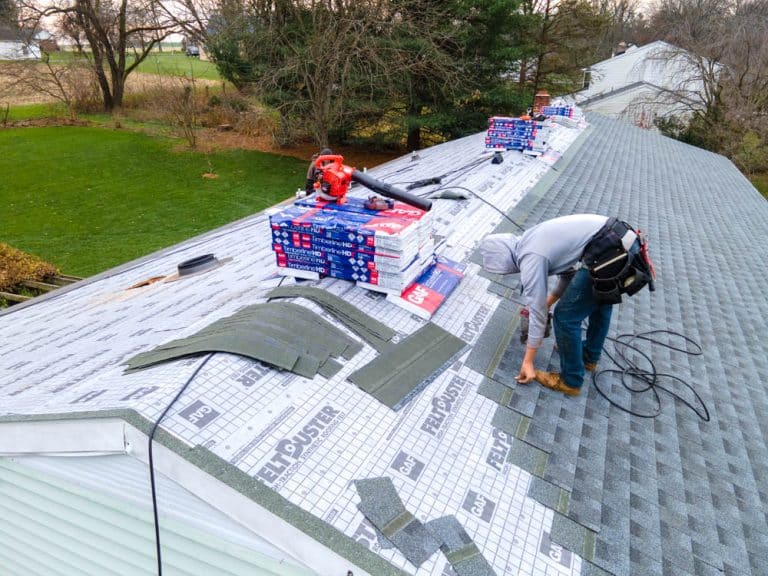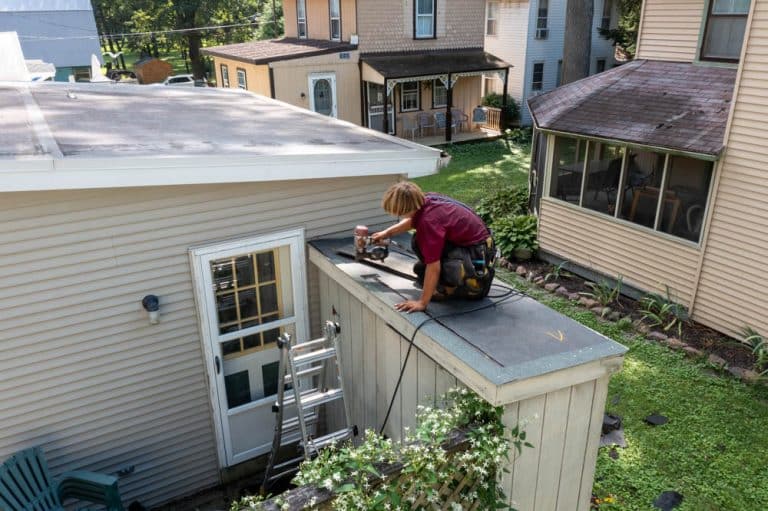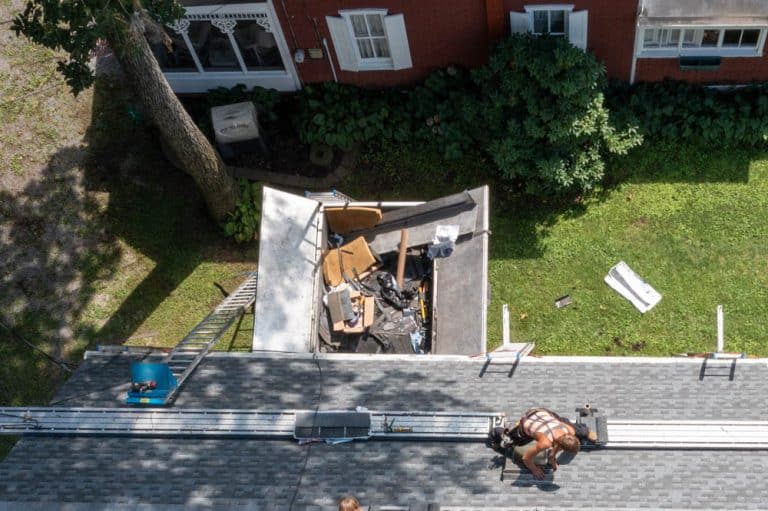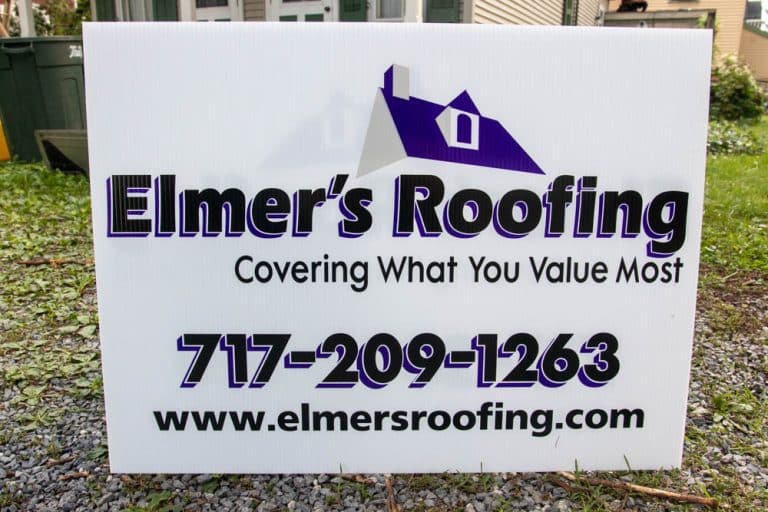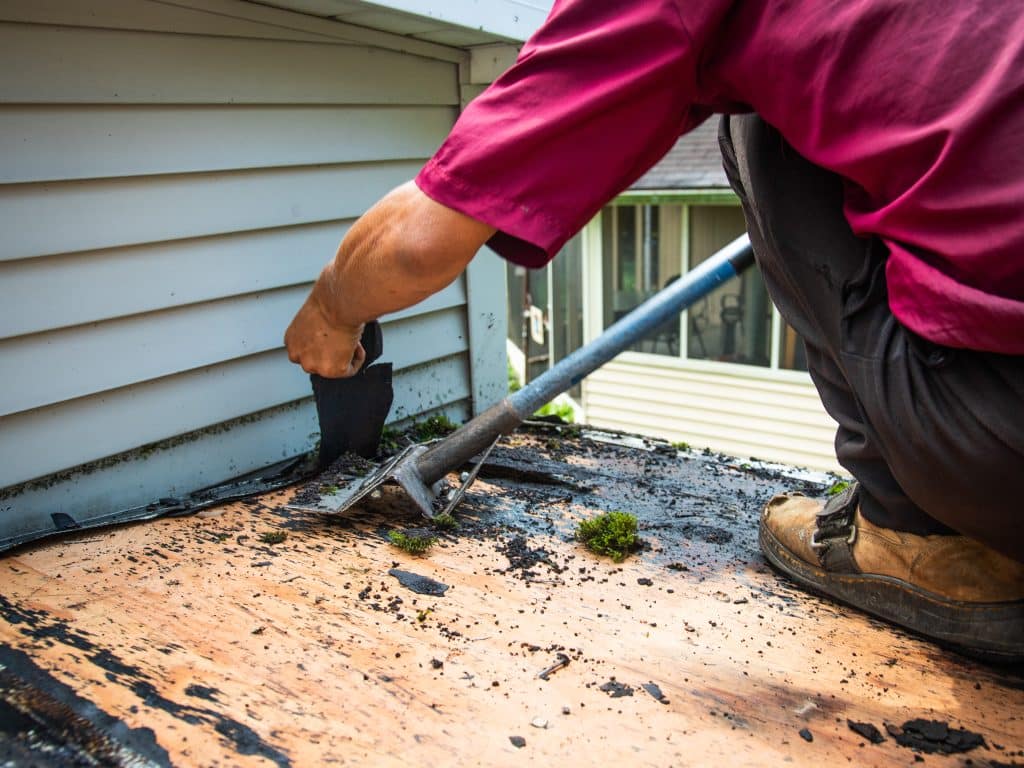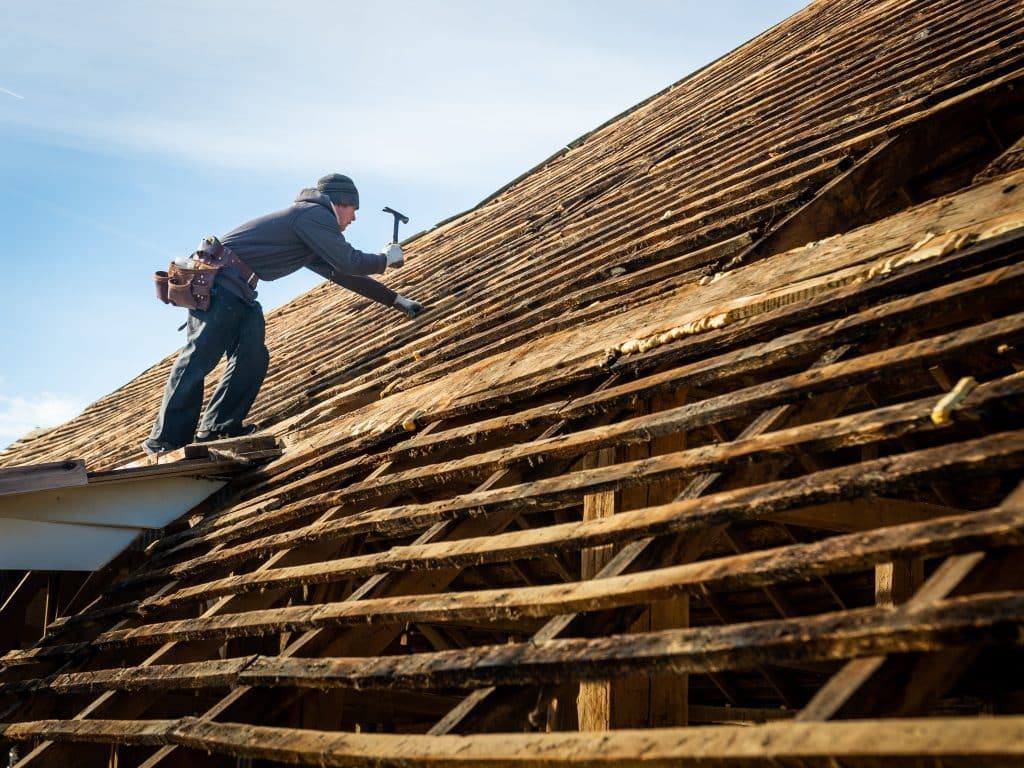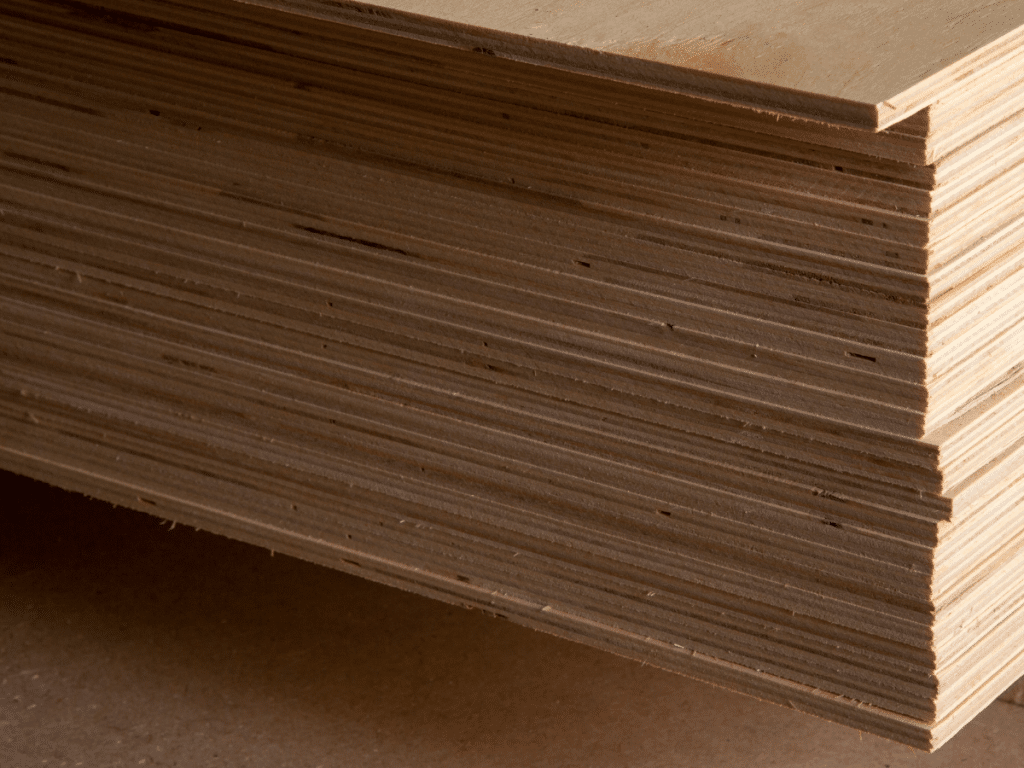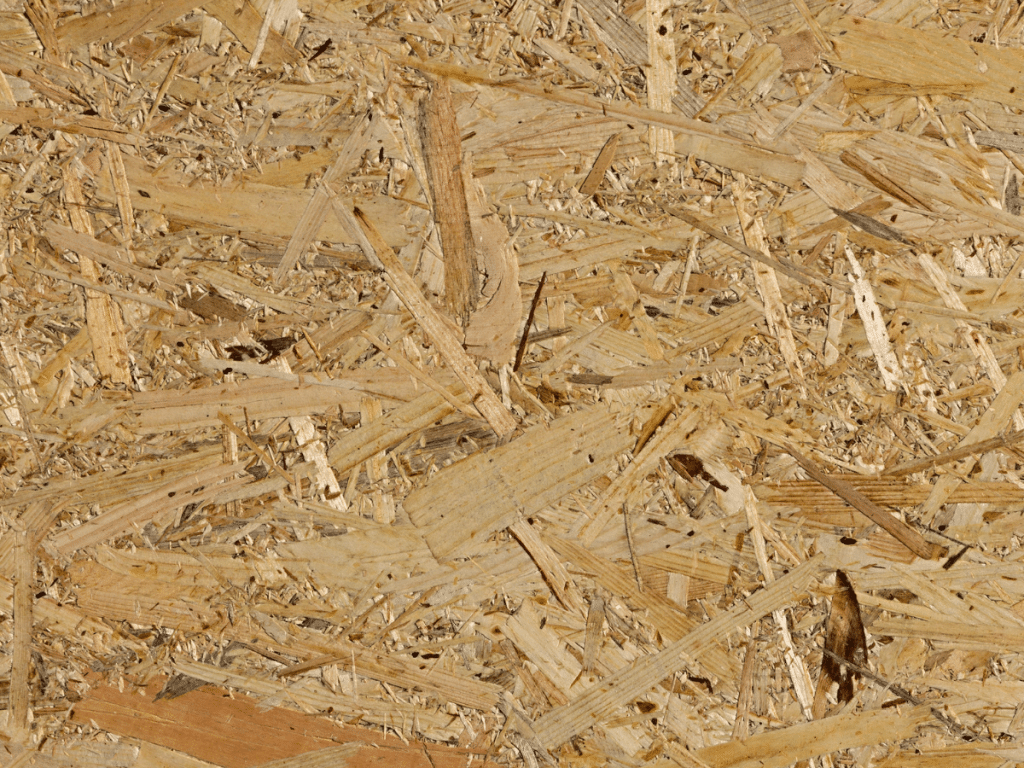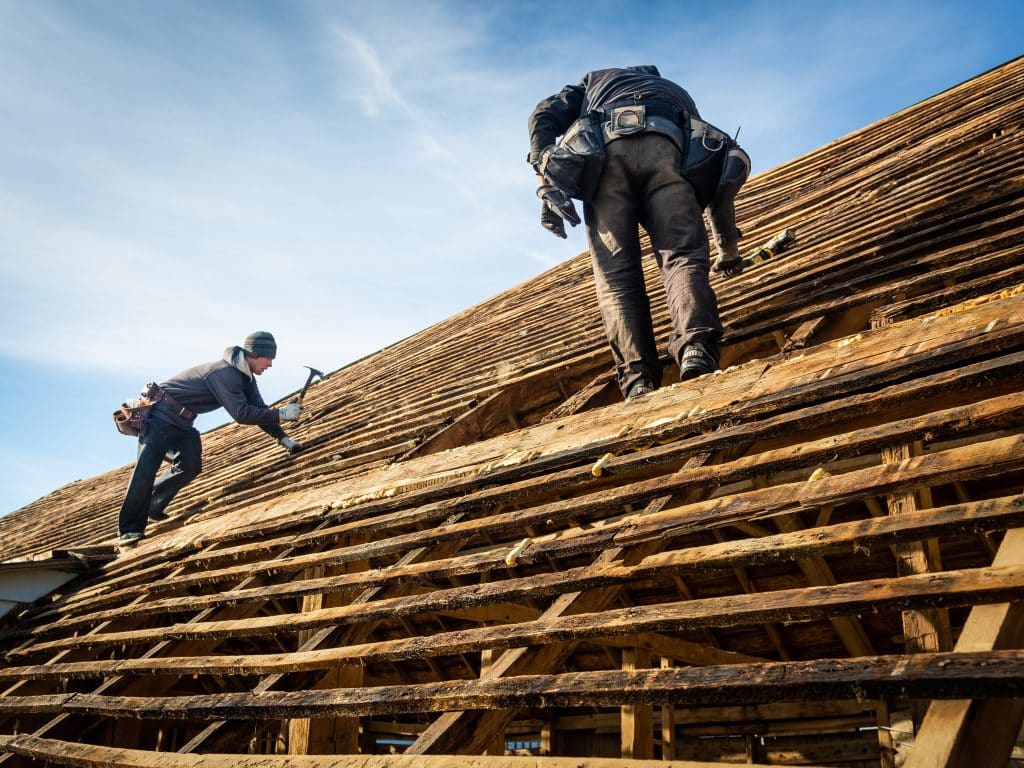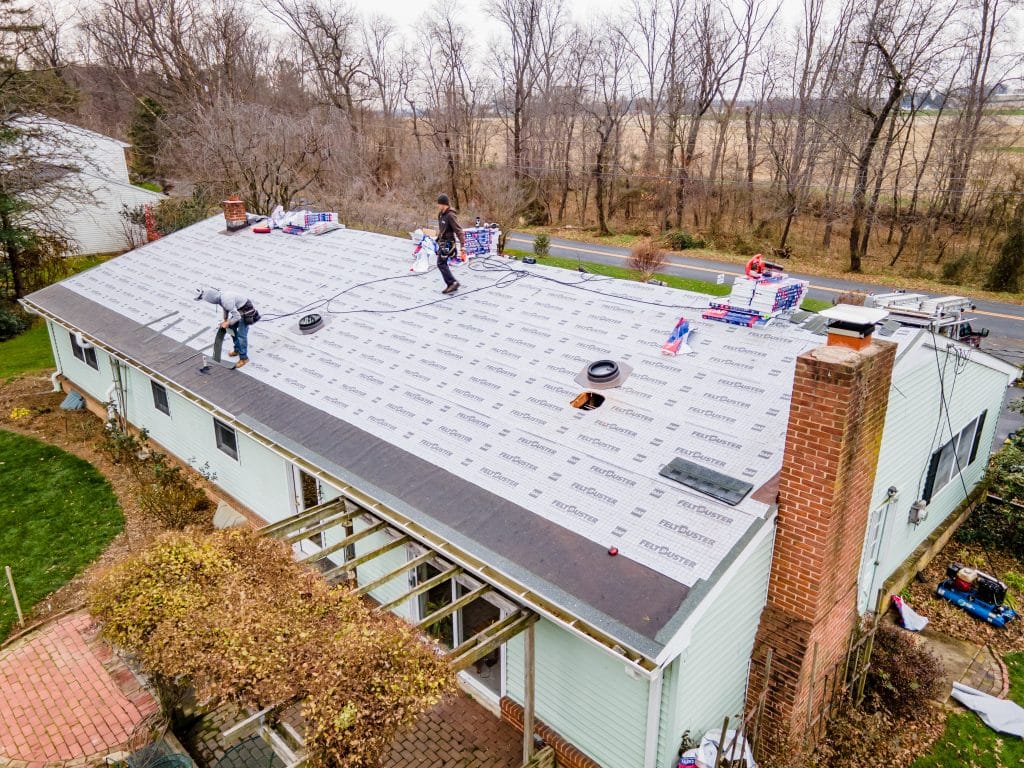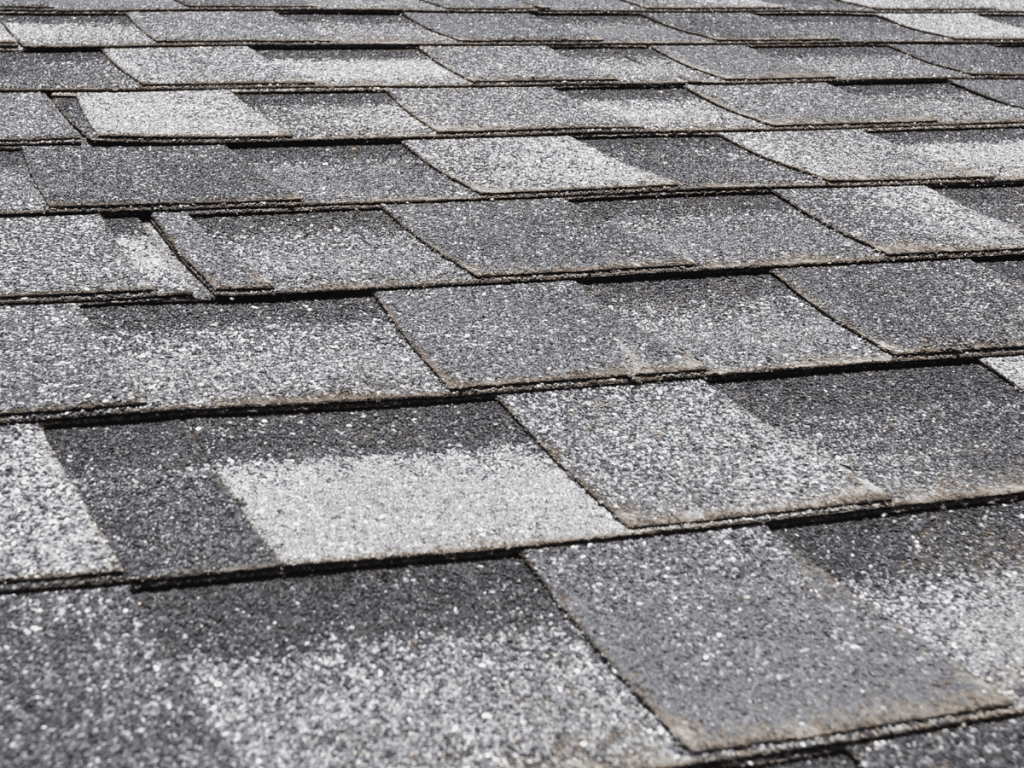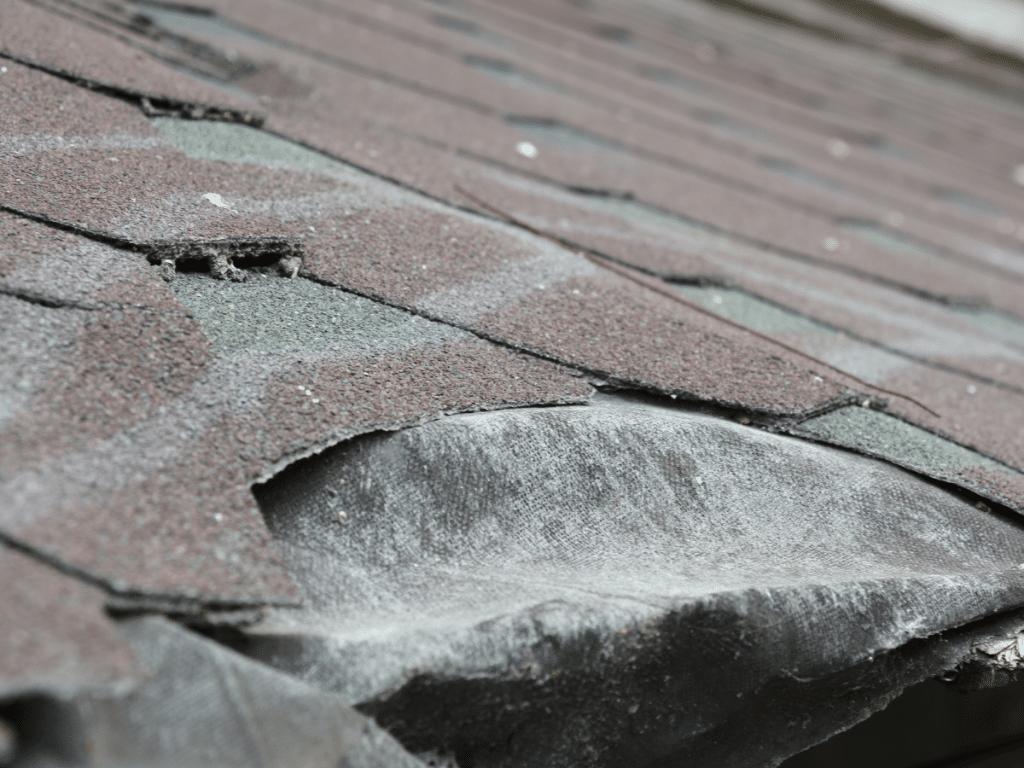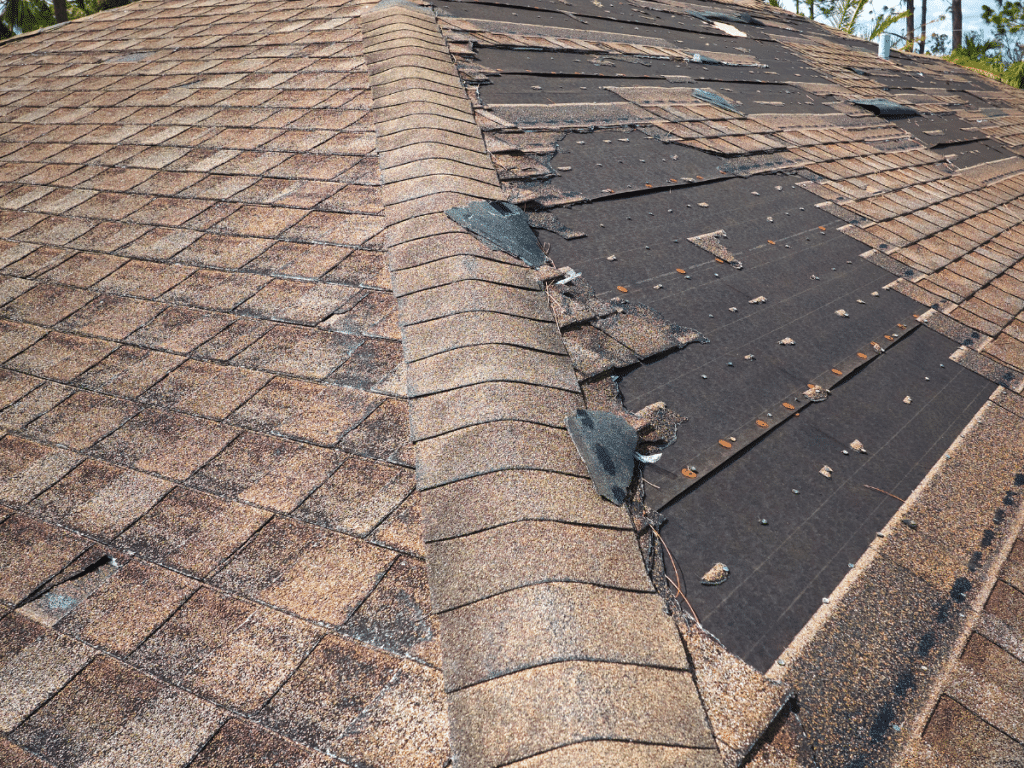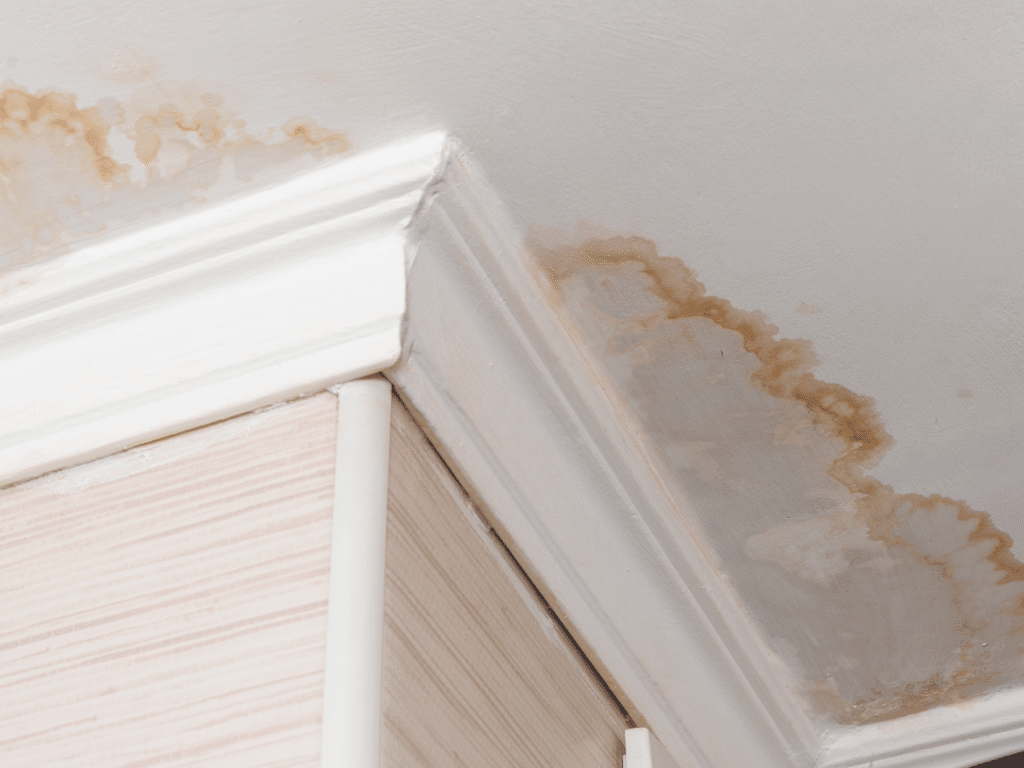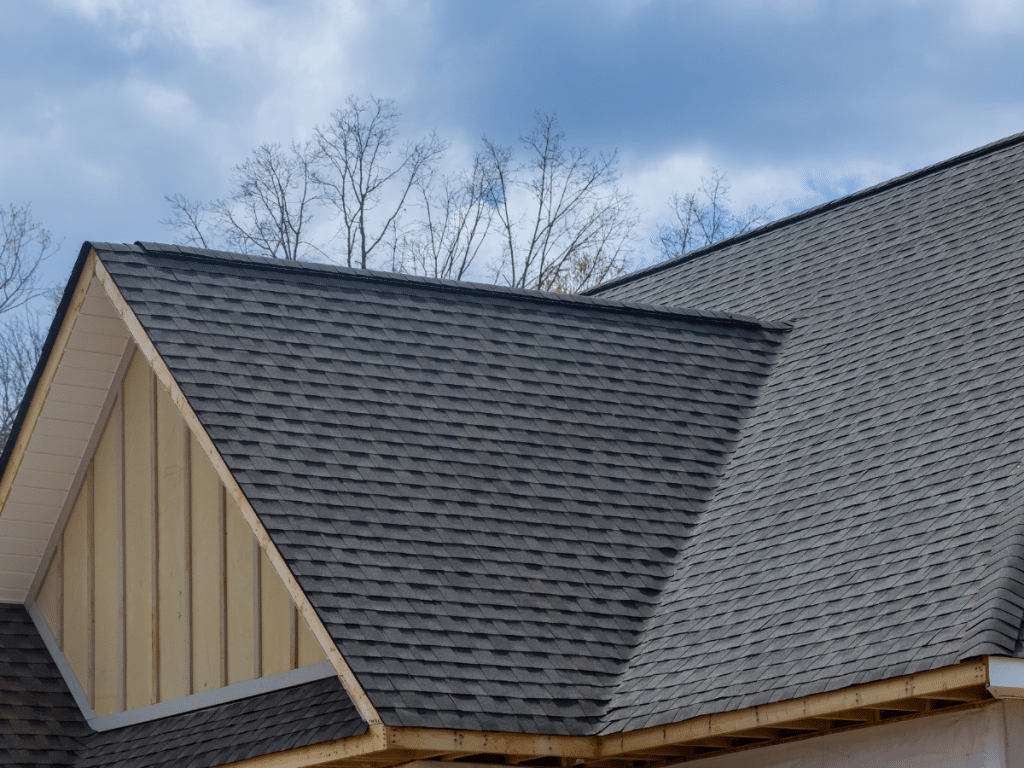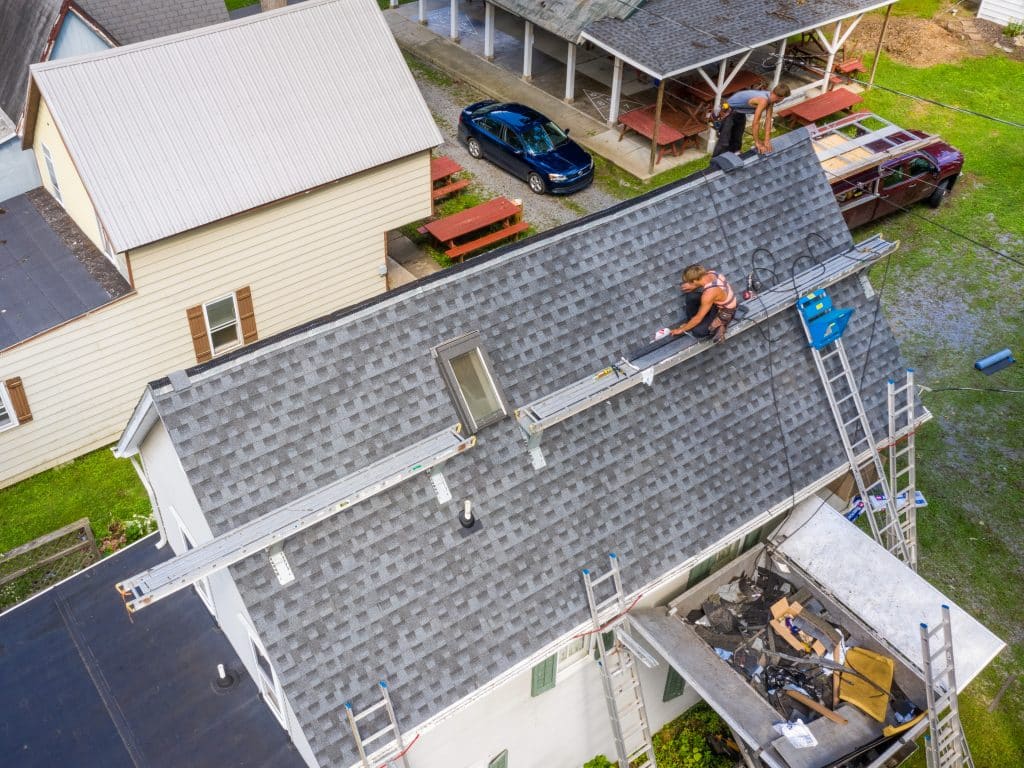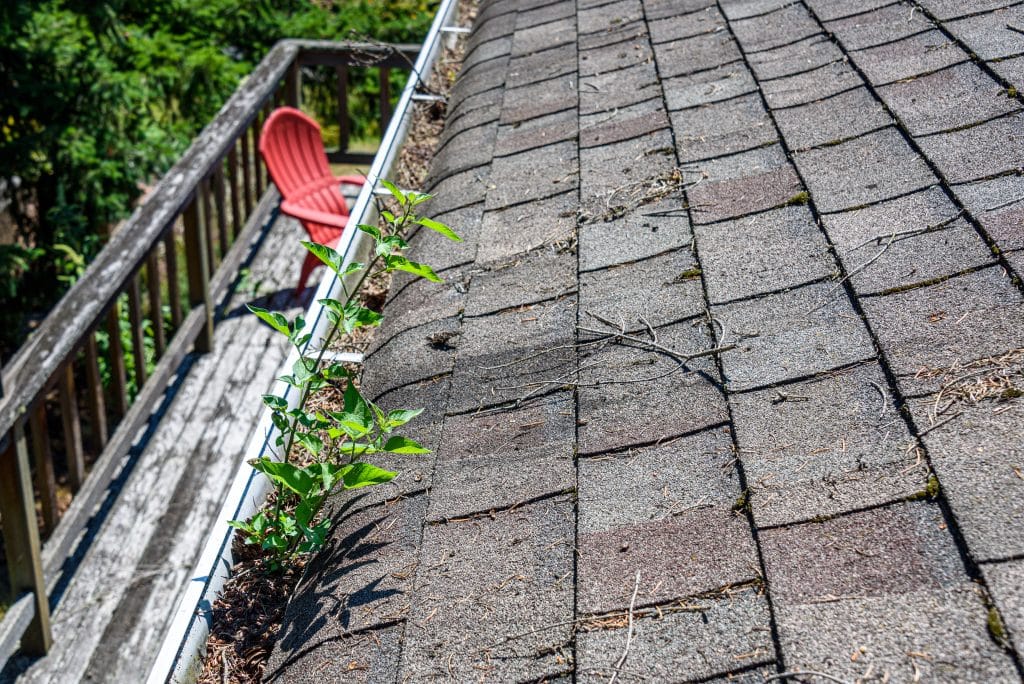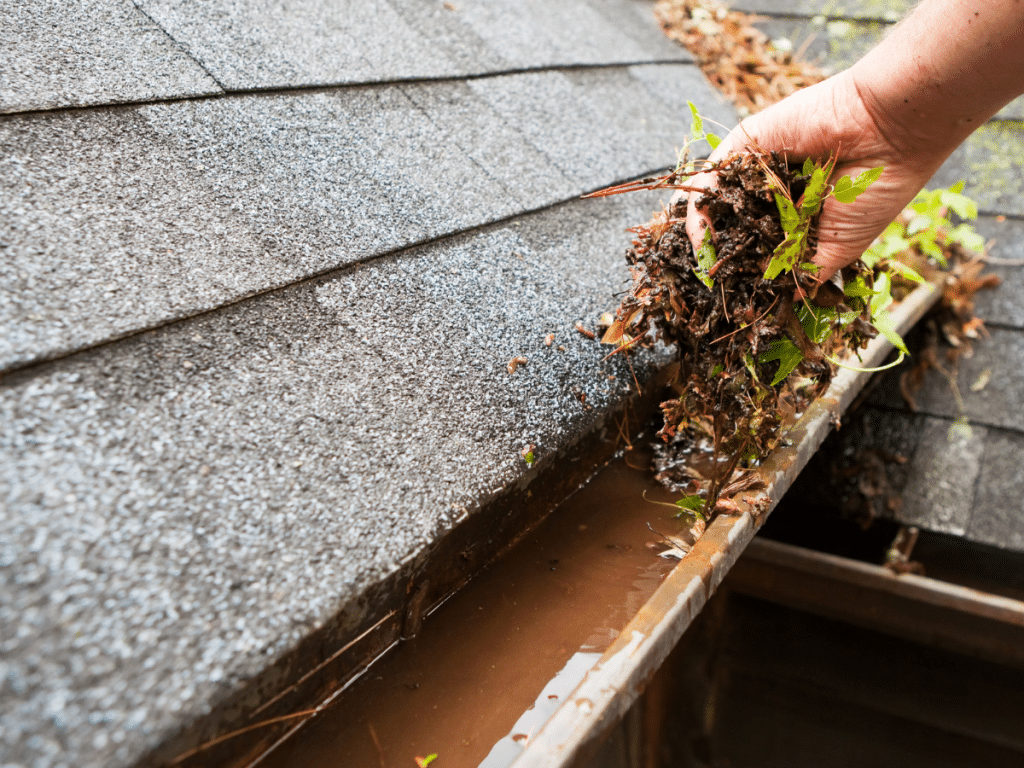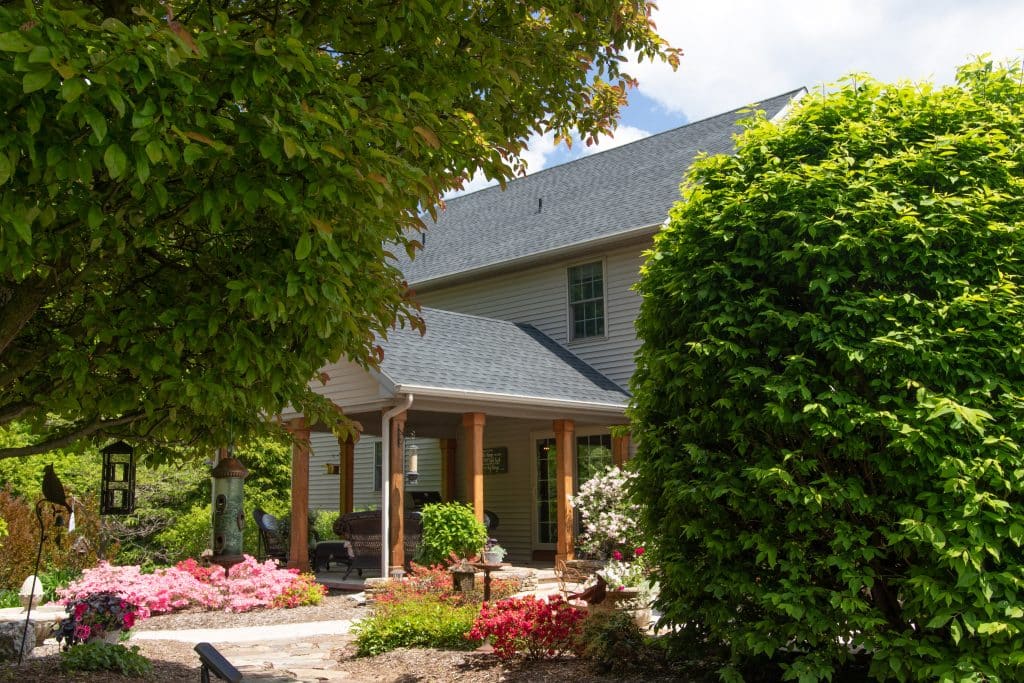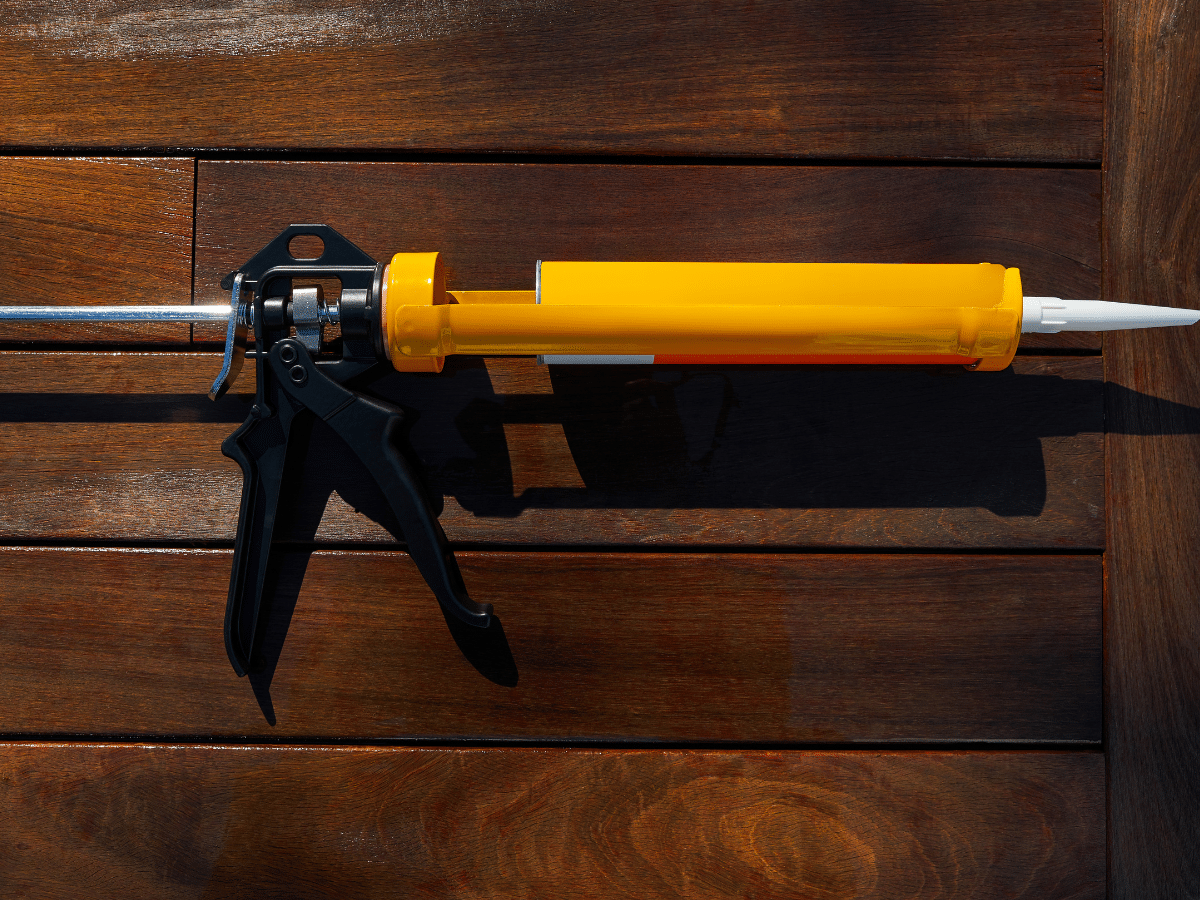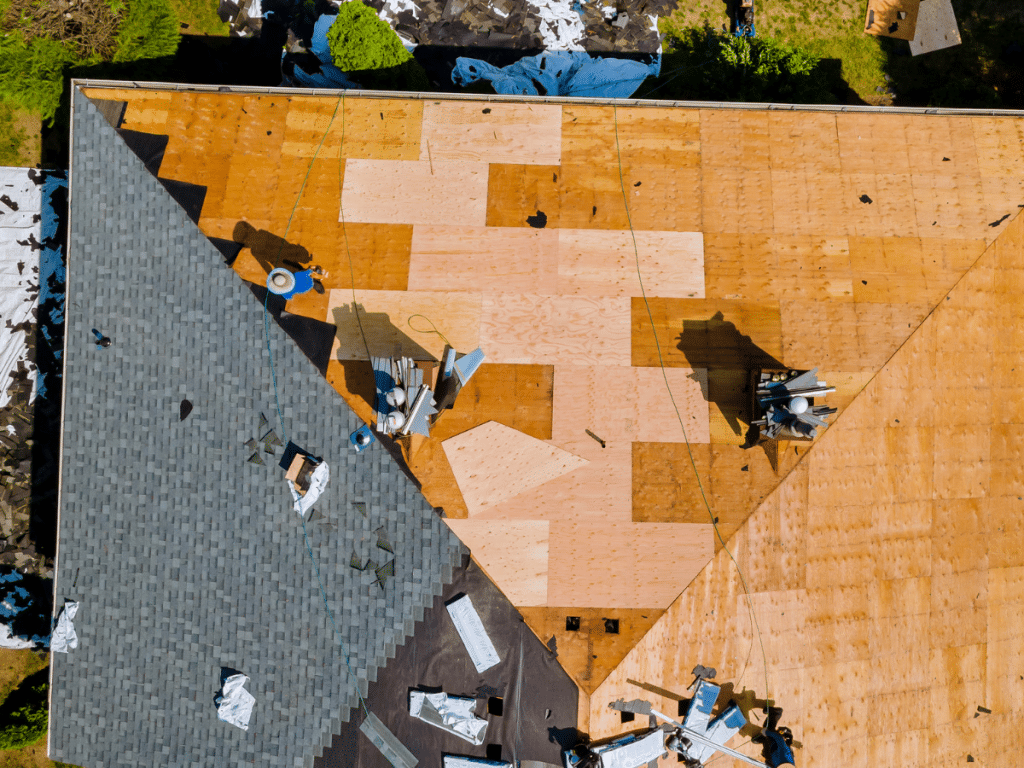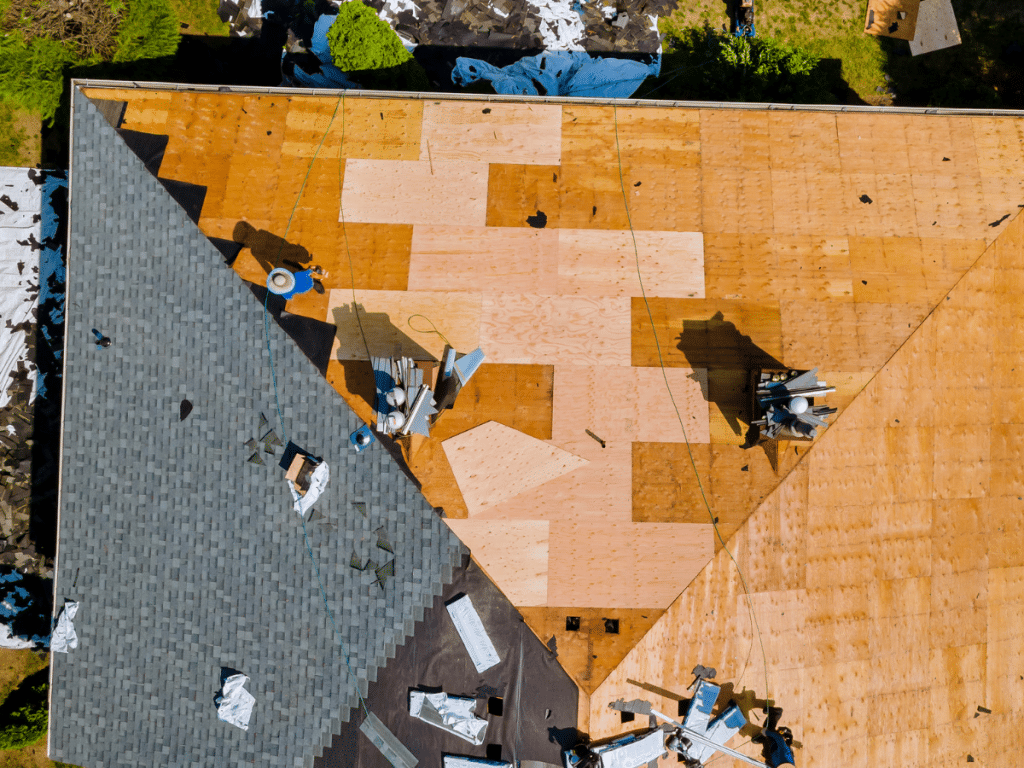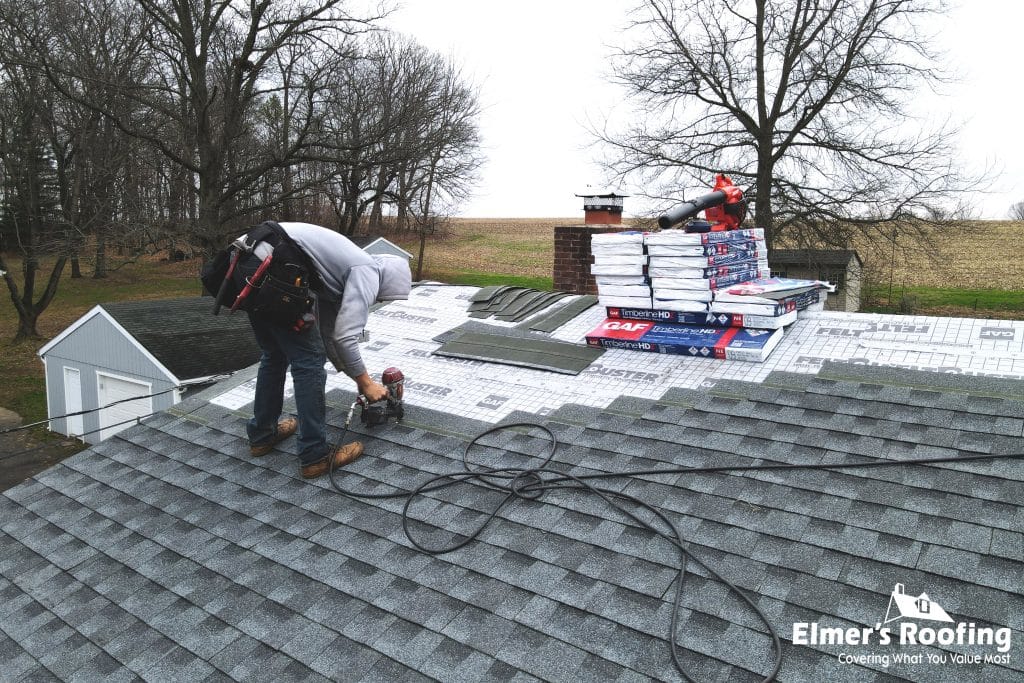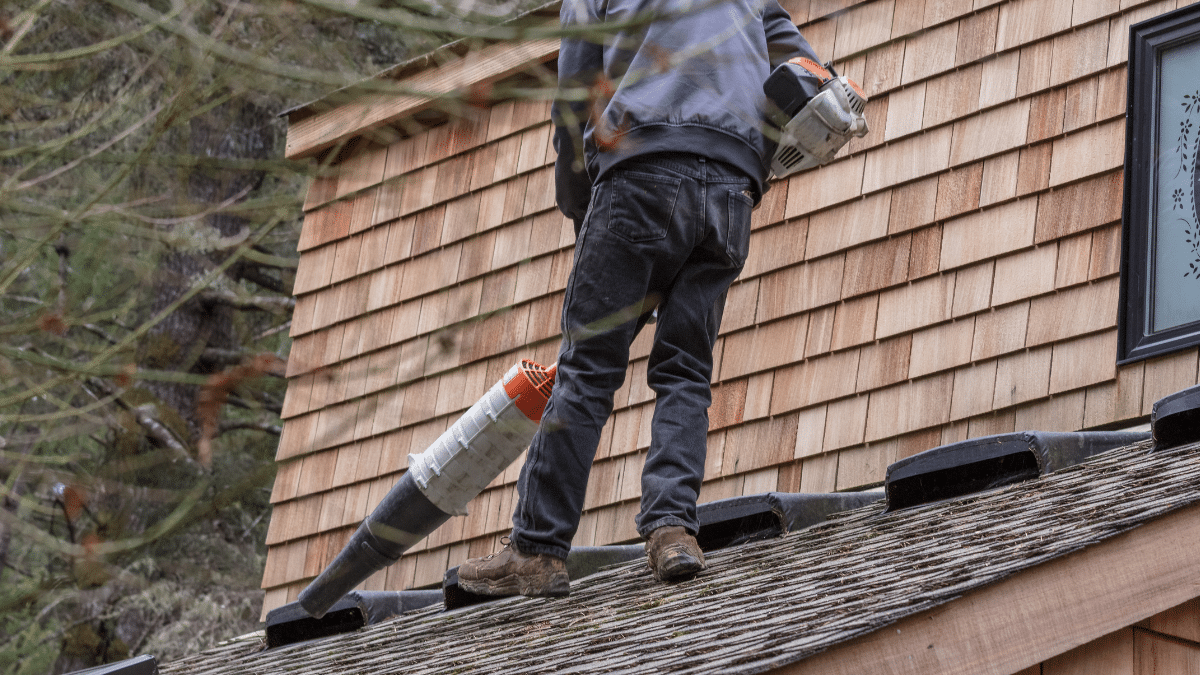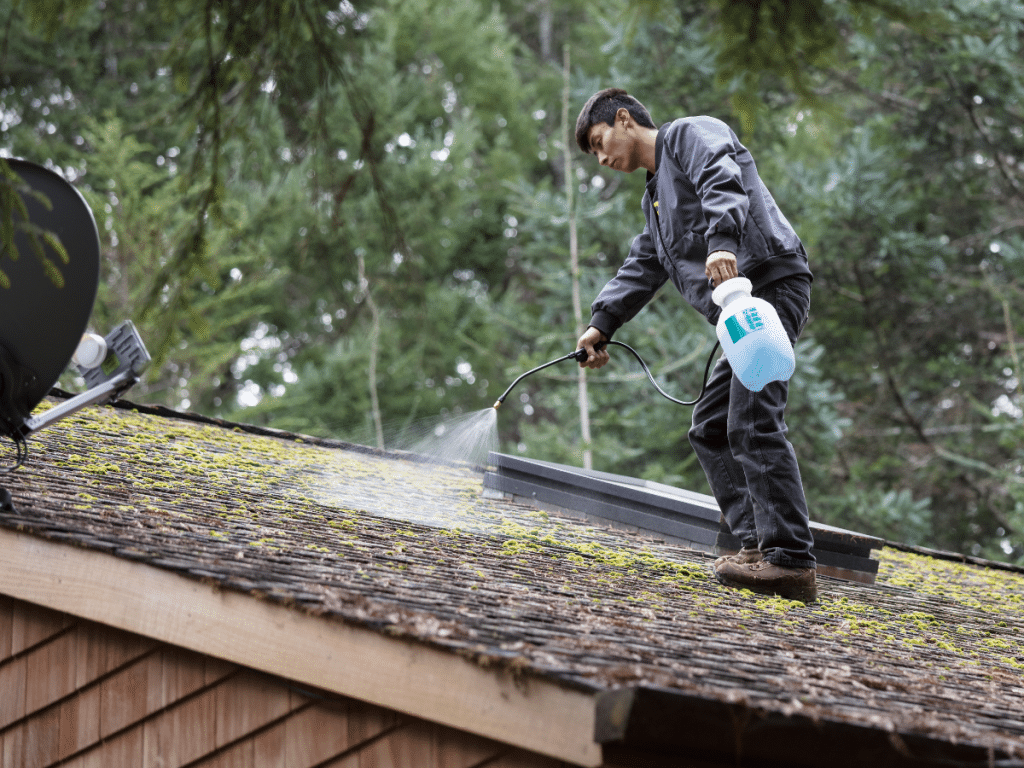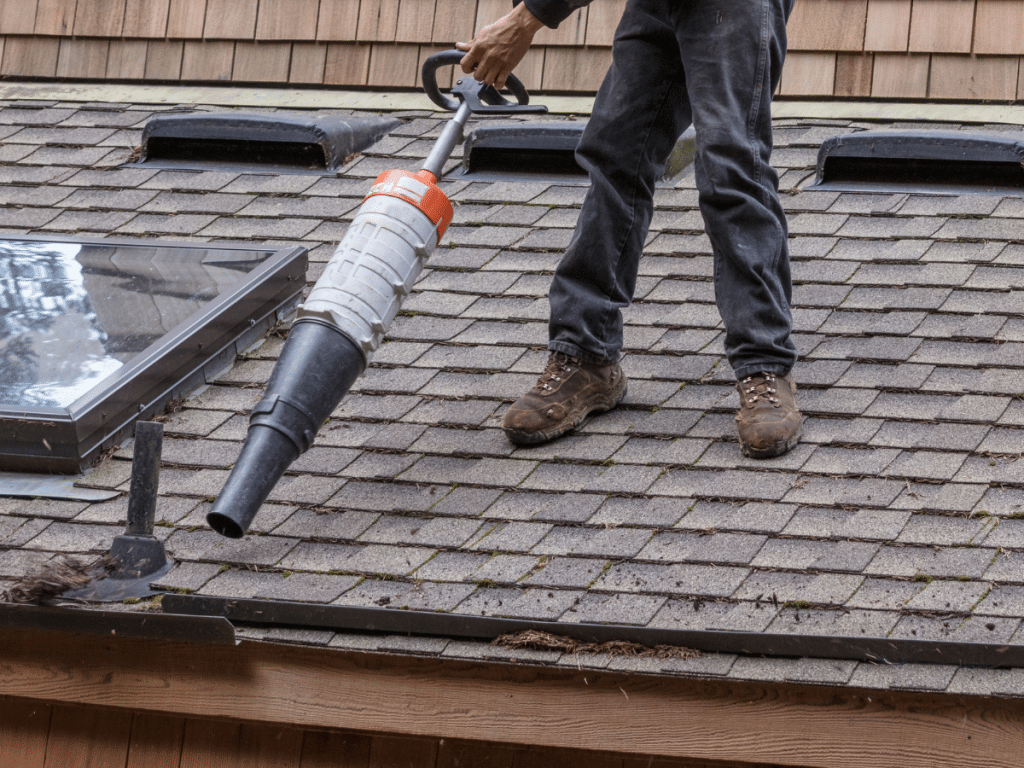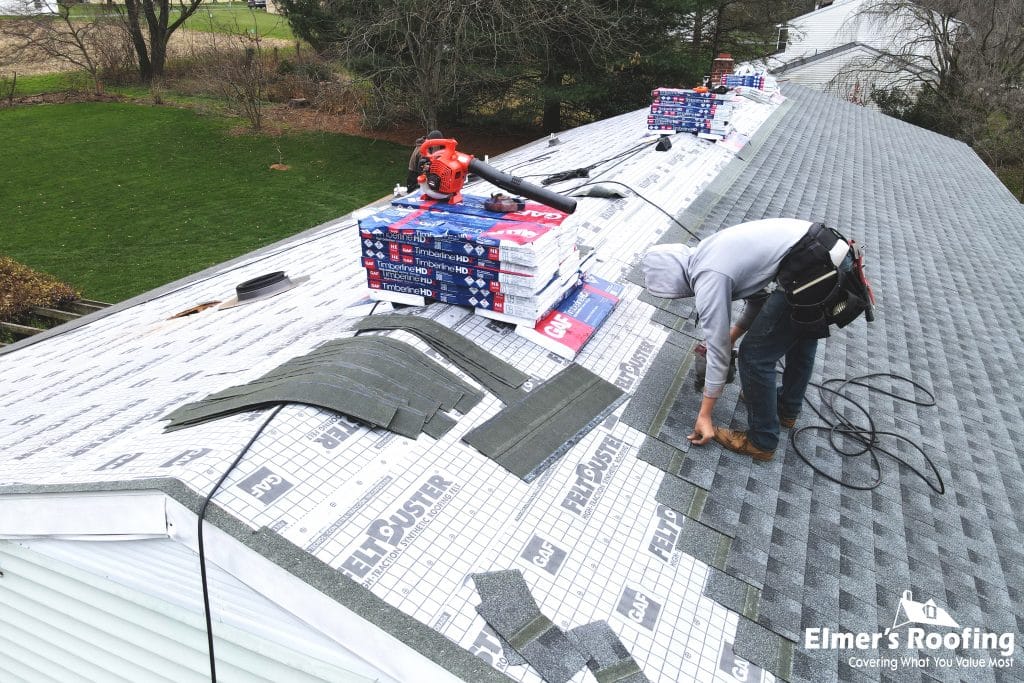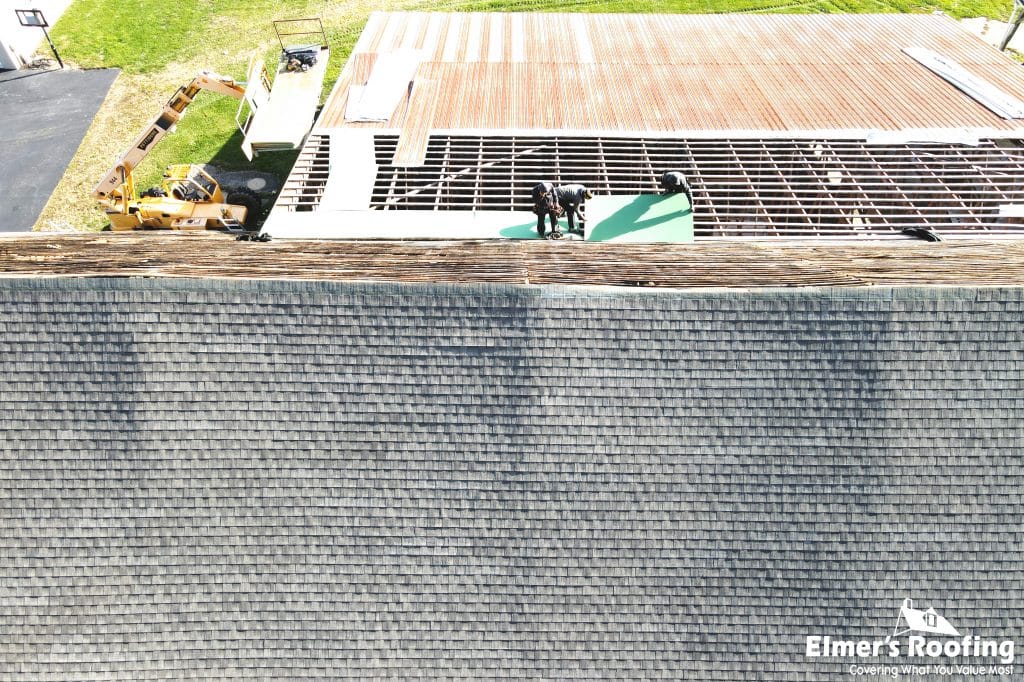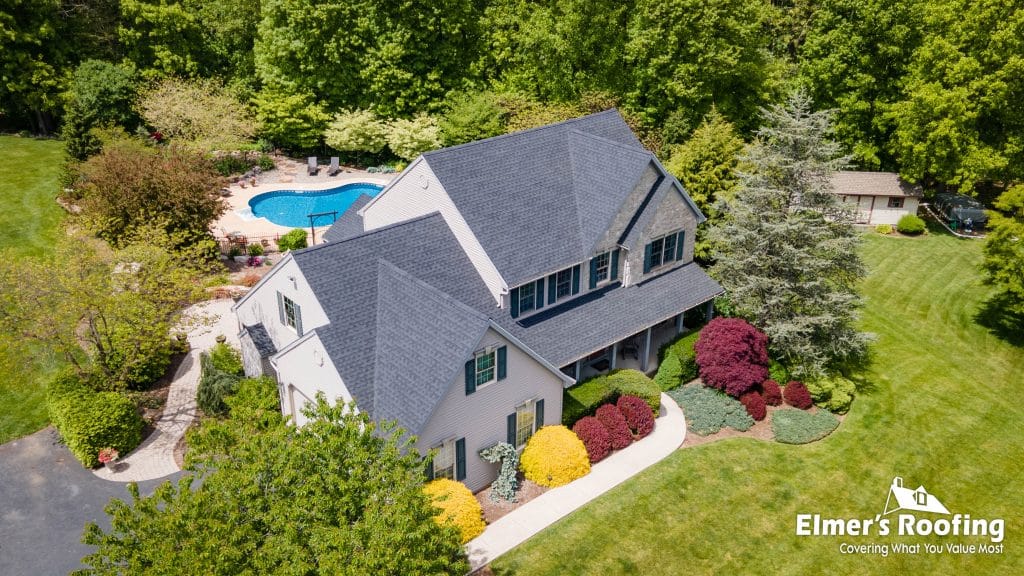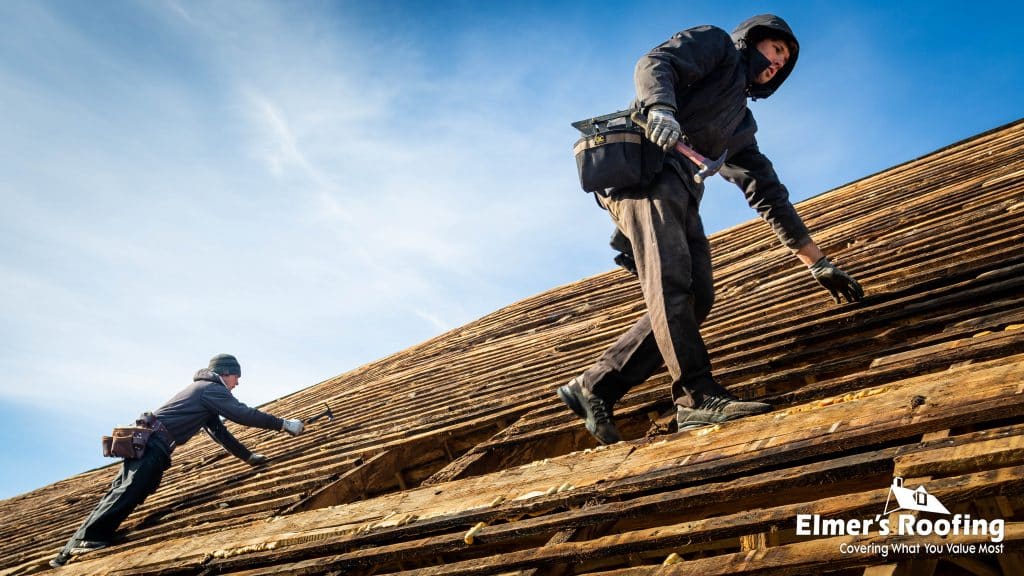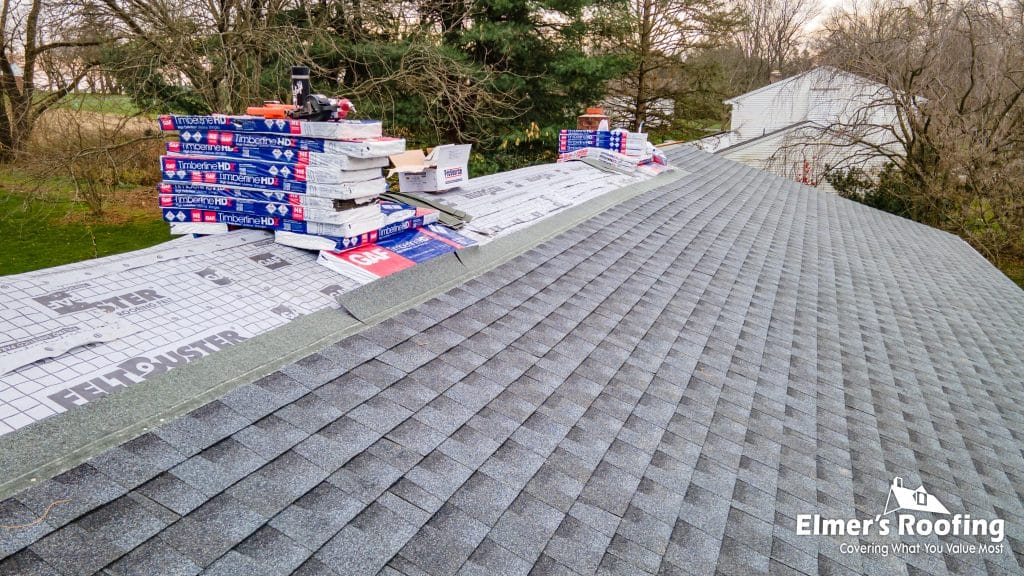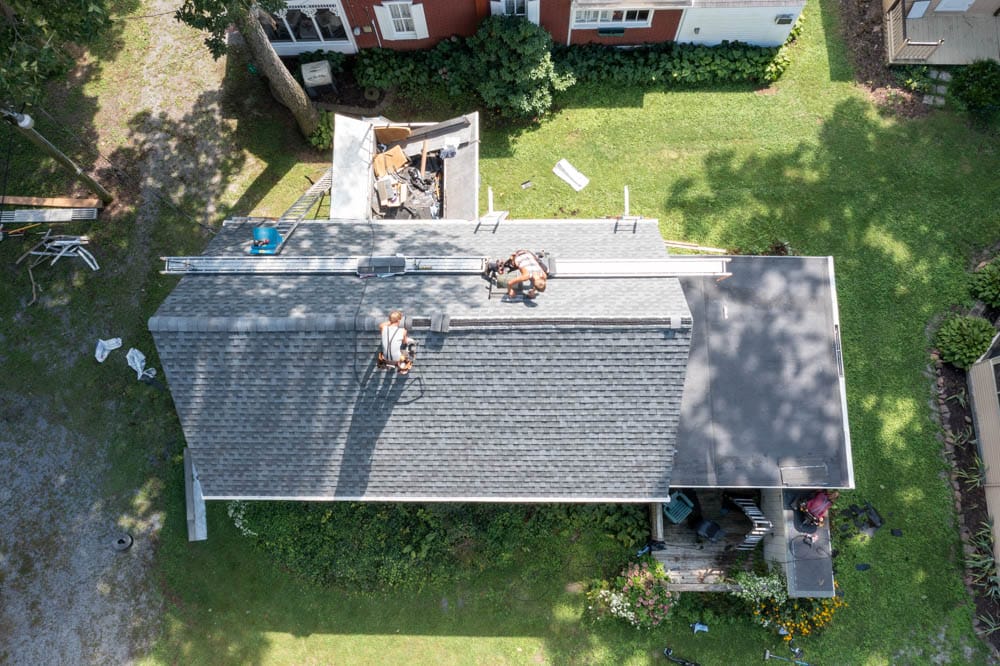
Table of Contents
If you’re thinking about getting your roof replaced, odds are you have a lot of questions. How much does a roof replacement cost? Is it covered by insurance? How long will it take? The list goes on and on.That’s why we’ve compiled 11 of the most common questions about roof replacements right here in one place.
To save your valuable time, browse through our list of frequently asked questions about roof replacement here and get all the answers you need before starting the process!
1. How Much Does a Roof Replacement Cost?
The cost of a roof replacement varies widely depending on several factors, so an exact number is impossible to give without evaluating your unique situation. However, understanding the main factors that influence pricing can help you get a better idea of what to expect.
Factors Affecting Roof Replacement Costs
- Materials: The materials your roof is made of play a significant role in determining the overall cost. Asphalt shingles, which are the most common, are generally more affordable but don’t last as long as higher-end materials like metal, tile, or slate. Each material has its own price range, with asphalt shingles being on the lower end and copper or slate costing significantly more.
- Roof Size & Pitch: The larger the roof, the more material and labor it will require, which directly increases the cost. Additionally, roofs with a steep pitch (roof angle) can be more challenging and time-consuming to work on, which could also lead to higher labor costs.
- Location & Labor Costs: Where you live can impact roofing costs due to different labor rates across regions. In areas with higher living costs, roofing contractors typically have to charge more for their services. Rural areas may see lower labor costs but could have higher material delivery fees.
- Permits & Local Regulations: Depending on where you live, you might have to get certain permits before replacing your roof. Some areas also have building codes or regulations that could add to overall costs, especially if upgrades or reinforcements are required to stay up to code.
- Extent of Damage or Additional Repairs: If your current roof has significant damage, especially structural issues like rotting or damaged decking, the cost of repairs will add to the total replacement price. Hidden damage usually isn’t revealed until the old roof is removed, which can then drive up the cost further.
Roof Replacement Cost Range
Given all these factors, the cost of replacing a roof can range anywhere from $5,000 to $15,000 or more. Depending on whether you have an average-sized roof with standard asphalt shingles or a large, pitched roof with premium materials, the cost estimate will be very different.
If you’re worried about the price, keep in mind that many roofing contractors offer financing options to help spread out the cost. Investing in a quality roof keeps your home protected for years to come, potentially saving you from more expensive repairs down the road.
2. How to Get Insurance to Pay for a Roof Replacement?
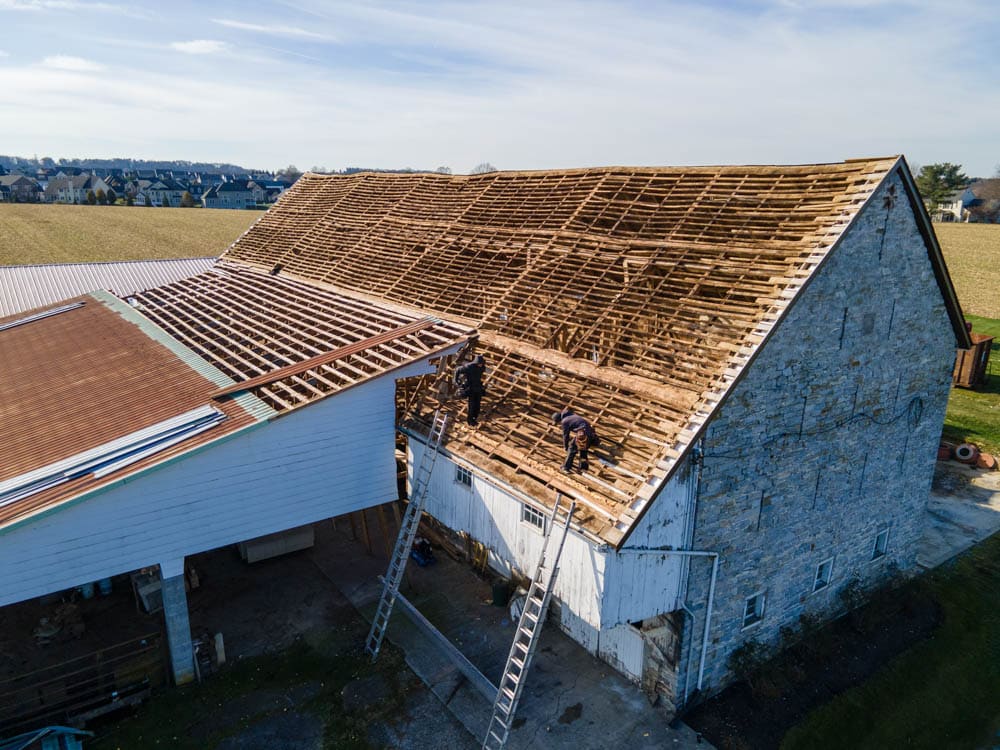
To get insurance to pay for a roof replacement, the replacement must typically be in response to damage caused by a sudden event like a storm rather than general wear and tear. If that’s the case, start by documenting the damage with photos and having a licensed roofing contractor inspect the roof to support your claim. Then, file your claim promptly and work with your insurance adjusted to ensure all damages are accounted for. It’s important to remember that coverage may vary depending on your insurance policy, so be sure to review it carefully.
3. What is the Best Time of Year for a Roof Replacement?
The best time to replace your roof is typically during spring and summer when the weather is mild and conditions are ideal for installation. Warmer temperatures allow roofing materials to seal more easily, and more hours of daylight allow more working time for contractors. However, scheduling a roof replacement during these peak seasons can be difficult, so it’s wise to plan ahead.
With that said, the ideal time for a roof replacement also depends on where you live. In colder climates, spring or early fall may be better options to avoid more extreme weather conditions, while homeowners in milder climates may have more flexibility throughout the year. At the end of the day, it’s important to talk to a roofing professional to determine the best time of year for your specific roof replacement needs.
4. How Long Does a Roof Last?
A typical roof usually lasts between 15 to 25 years, depending on factors such as the roofing material, installation quality, and weather conditions. Regular maintenance and repairs can help extend a roof’s lifespan, but once it reaches the 20-year mark or is showing significant signs of wear like leaks or curling shingles, it may be time to consider getting a roof replacement.
Related: How Long Do Roof Shingles Last?
Roof shingles usually last between 15 and 30 years, depending on their material and the climate they’re exposed to. Normal asphalt shingles tend to have a shorter lifespan, while architectural shingles can last longer due to their higher quality. Additionally, severe weather conditions, poor installation, and lack of regular maintenance can cause shingles to wear out sooner than expected. Keeping an eye on their condition will help you determine when it’s time for repair or replacement.
5. How Often Should a Roof Be Replaced?
Roofs should typically be replaced every 20 to 25 years, depending on the material and exposure to weather conditions, as mentioned earlier. After about 15 to 20 years, you should start to monitor your roof more closely for signs of aging or damage, such as leaks, curling shingles, or more frequent repairs. If you start to notice these issues, or if your roof is approaching the end of its expected lifespan, it’s probably time to consider a replacement. Regular inspections can help catch potential problems early, preventing costly repairs and extending the life of your roof.
6. How to Know When to Replace My Roof?
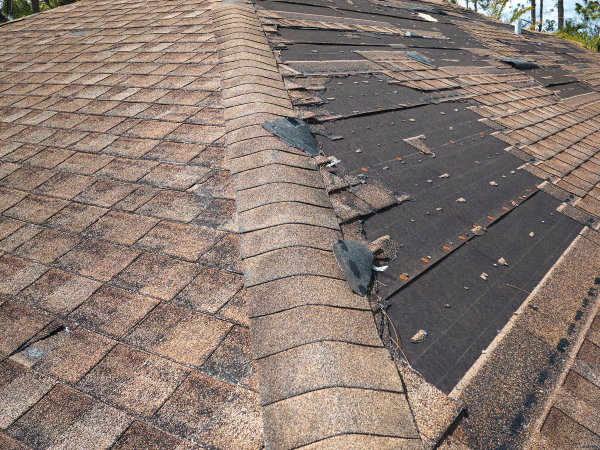
You should consider replacing your roof if it’s approaching the 20 to 25-year mark or if you notice signs of damage like leaks, missing shingles, or sagging. Frequent repairs can also signal that your roof is in need of a replacement. Additionally, if you start noticing pieces of shingle in your gutters or are experiencing higher-than-normal energy bills, these may be indicators that your roof is no longer performing efficiently. Regular roof inspections will help you determine when a roof replacement is necessary to protect your home.
7. How Long Does It Take to Replace a Roof?
It usually takes between one and three days to replace the roof of an average-sized home, depending on the complexity of the roof and the weather conditions. Larger or more intricate roofs could take up to a week in some cases. Weather delays and the discovery of hidden damage can also extend the timeline.
Planning ahead and working with an experienced roofing contractor like Elmer’s Roofing can help ensure that your project stays on schedule and gets completed efficiently without sacrificing quality.
8. Do I Have to Move Out of My House During a Roof Replacement?
No, you don’t usually have to move out of your home during a roof replacement, but be prepared for noise and potential disruptions. Most homeowners and families can stay put during the process, however some prefer to temporarily relocate for comfort, especially if the project will take several days to complete. If extensive repairs are needed or there will be a lot of debris, you should plan accordingly. Discussing all of this with your roofing contractor will help you understand what to expect and plan for during the roof replacement process.
9. Do Companies That Replace Roofs Work on the Weekends?
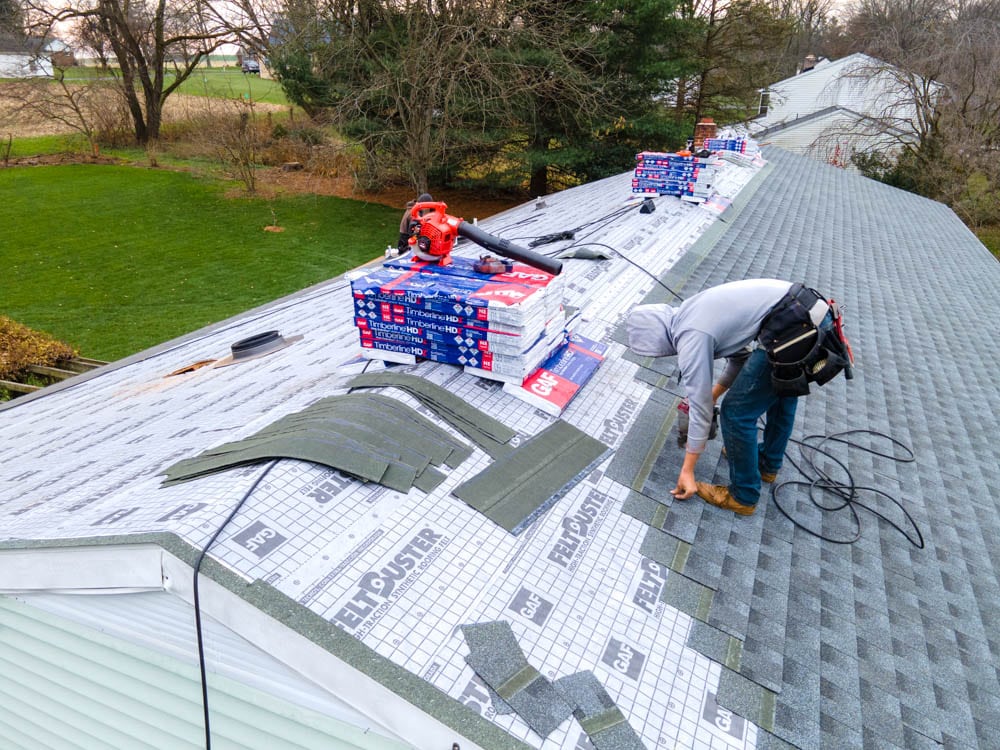
Many roofing companies work on weekends doing roof replacements, especially during the peak season in the spring and summer. However, be sure to confirm your contractor’s availability when planning your roof replacement.
At Elmer’s Roofing, we offer flexible scheduling, including weekends, to make sure your daily life is disrupted as little as possible. Weekend work also allows us to complete projects more quickly and conveniently.
10. How to Find Out When a Roof Was Replaced?
If you need to find out when your roof was last replaced, start by checking any home inspection reports or documentation from when you bought the house. You can also contact your local building department to see if any permits were pulled for the work. If the roof was replaced before you owned the home and there are no records available, a professional roof inspection could help estimate the roof’s age, looking for wear and tear indicators like shingle condition and material degradation to provide clues.
11. When Should I Get a Roof Replacement vs. Repair?
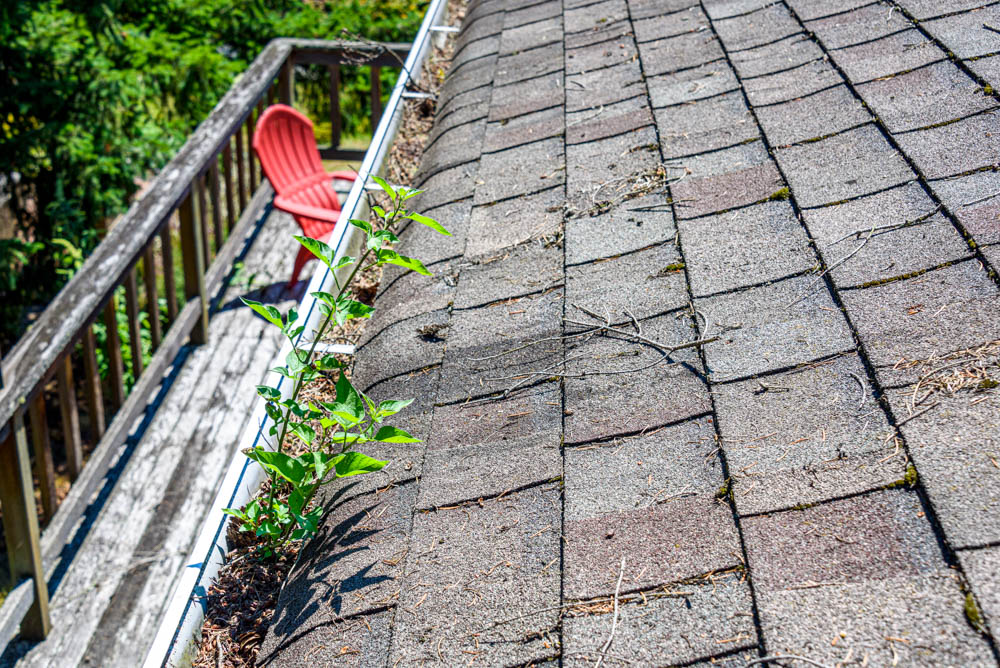
Deciding between a roof replacement and a roof repair depends on several factors, including the roof’s age, the severity of the damage, and how often repairs are needed. If your roof is nearing the 20 to 25-year mark, replacement is typically the better long-term solution, especially if there is widespread wear and tear or damage. However, if your roof is relatively new and only has minor issues like a few missing shingles or a small leak, a simple repair might be sufficient.
Frequent repairs or significant problems, like structural damage or serious water intrusion, may also indicate that a roof replacement is the more cost-effective choice. Getting regular roof inspections by a professional roofer can help identify underlying issues and inform you to help make the best decision for your roof. Balancing the costs, the condition of your roof, and its remaining lifespan will help you make the right call for your home.
Have More Questions? Contact Elmer’s Roofing to Learn More!
Navigating a roof replacement can feel overwhelming with all the questions about costs, insurance, timing and more. Hopefully after reading through the common questions and answers above, you feel more confident about starting the process of getting your roof replaced. The most important piece of information in this entire blog, however, is to talk to your roofing contractor! They will be able to provide you with specific information about your unique roof replacement based on your needs and their capabilities.
To learn more about the roof replacement services of Elmer’s Roofing in Lancaster, Berks, Chester, and Harford counties, give us a call at (717) 209-1263 or read more about us here. We also offer asphalt shingle installation and maintenance, membrane roofing repair and replacement, and more!
Ready to get your roof replaced? Click the button to get your free roofing consultation today!






